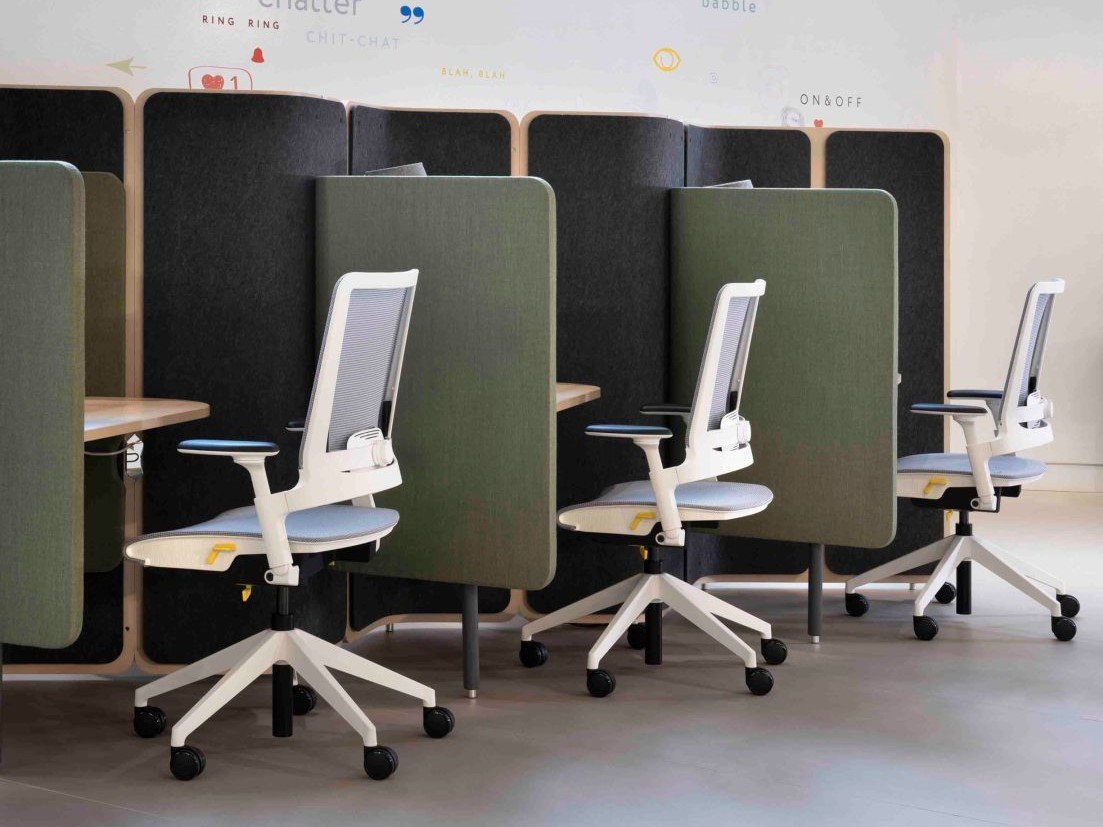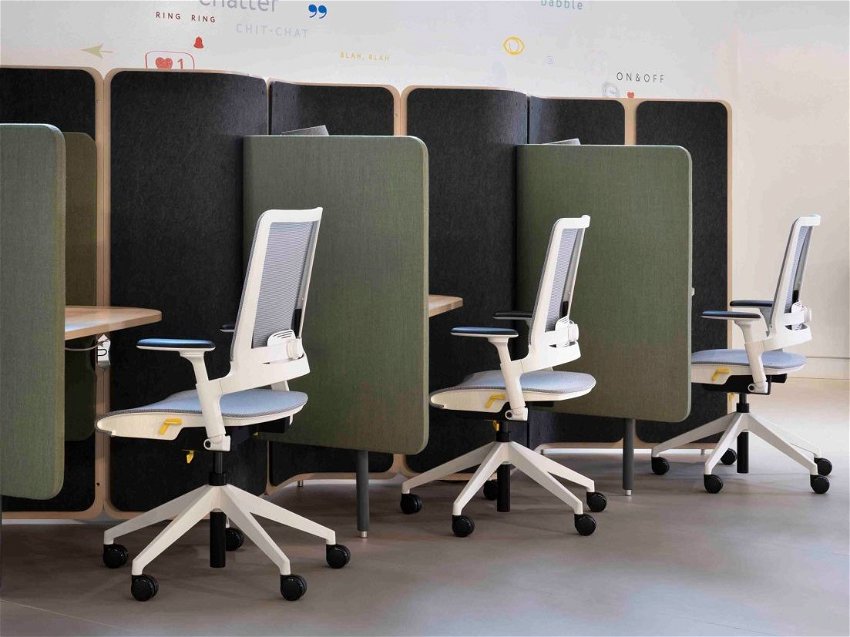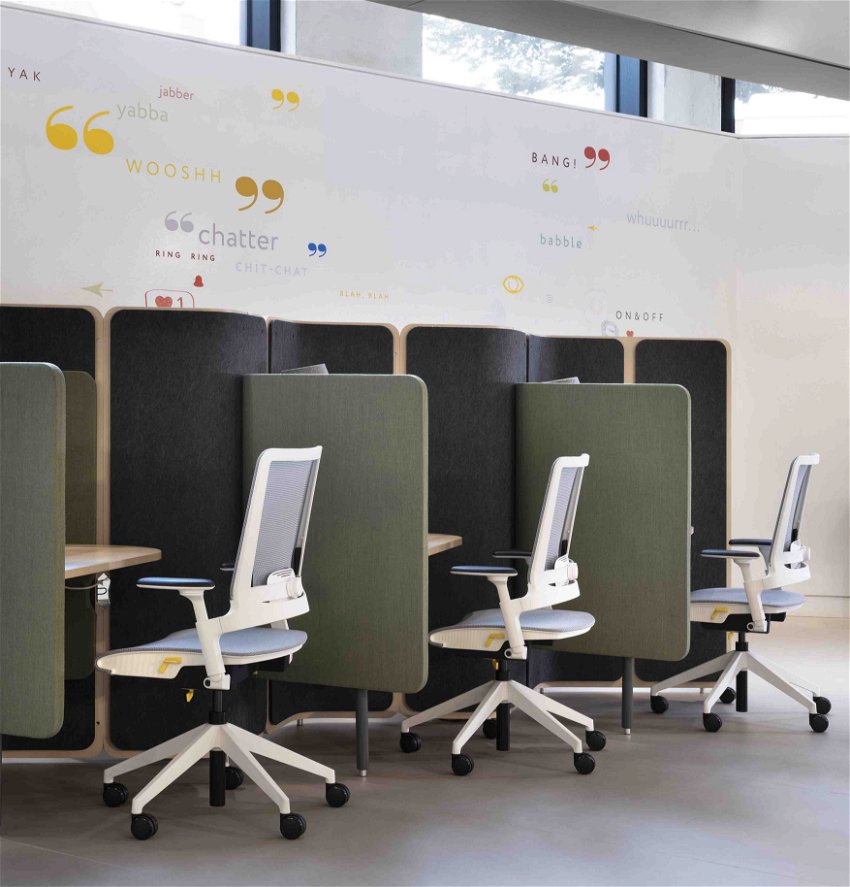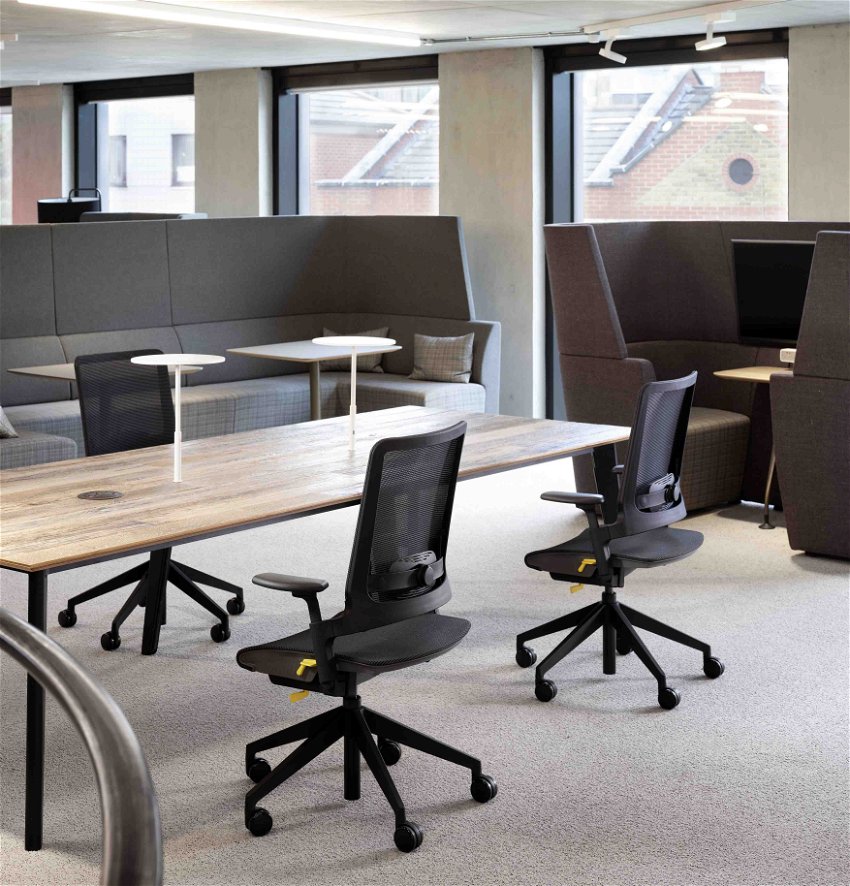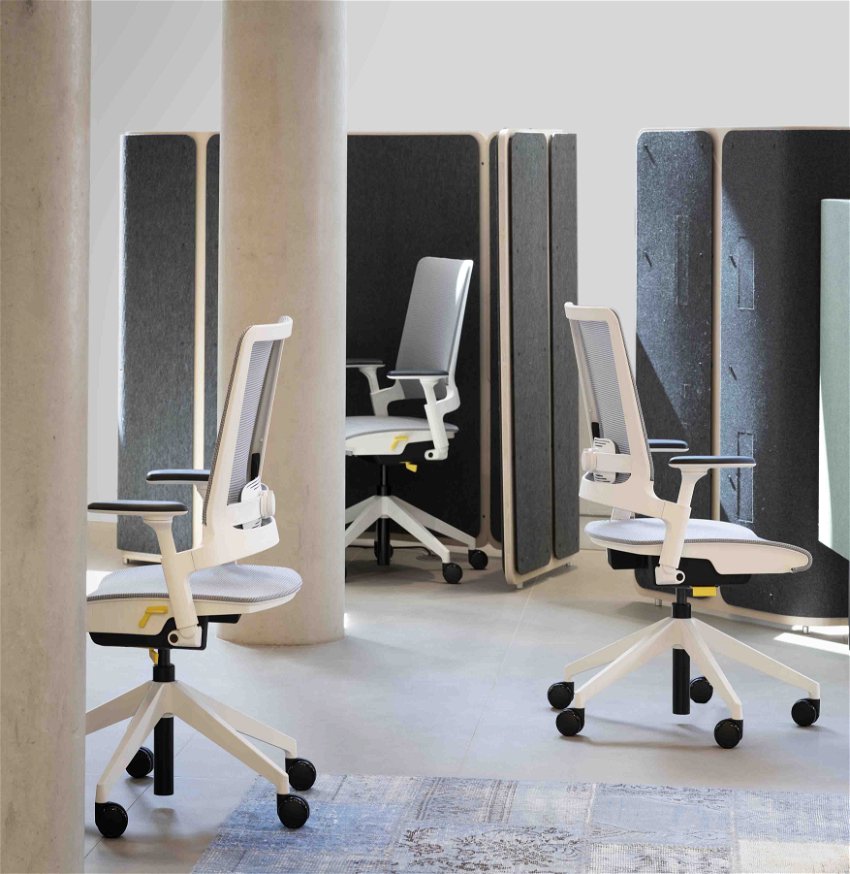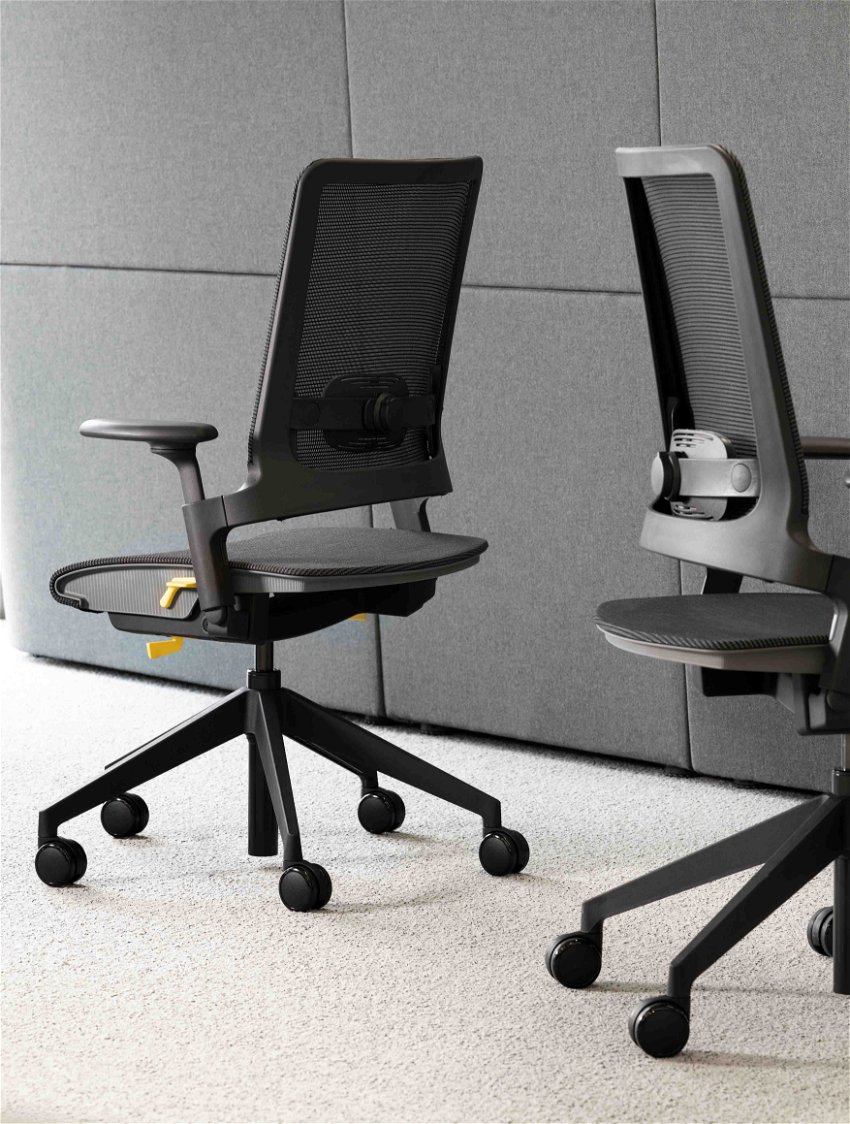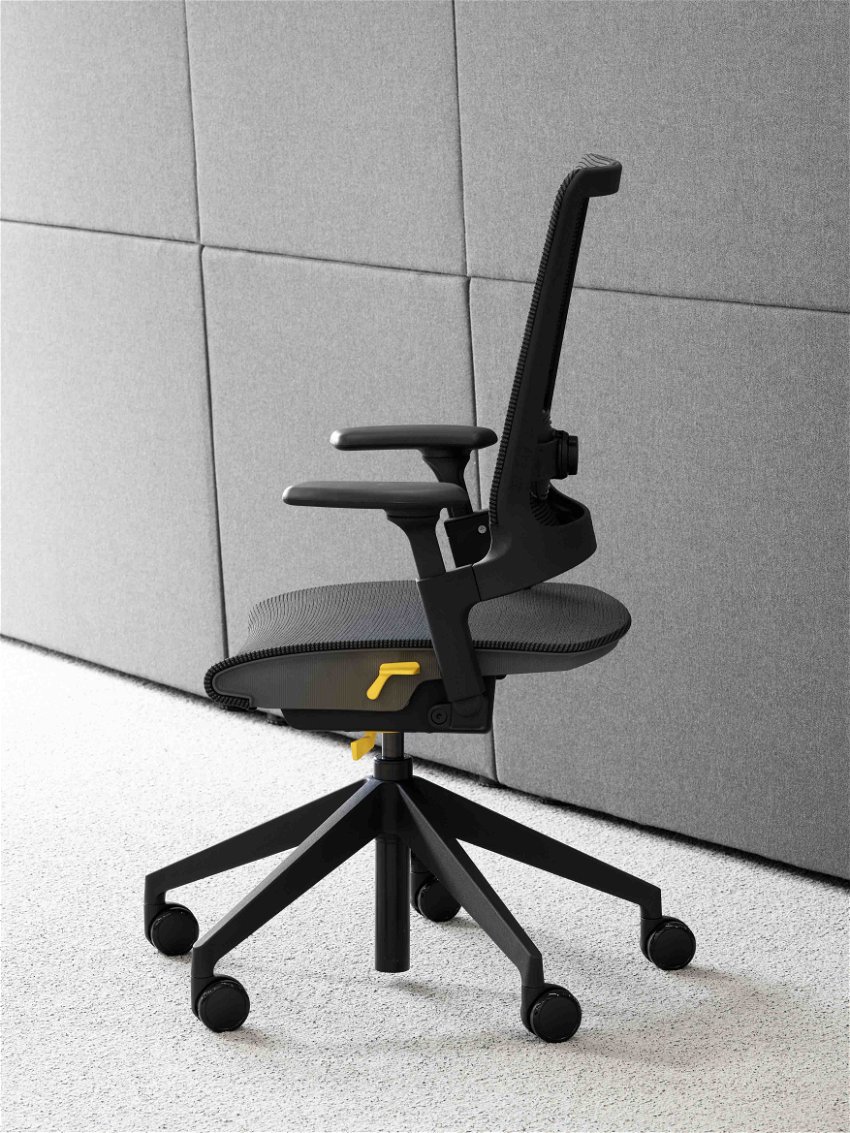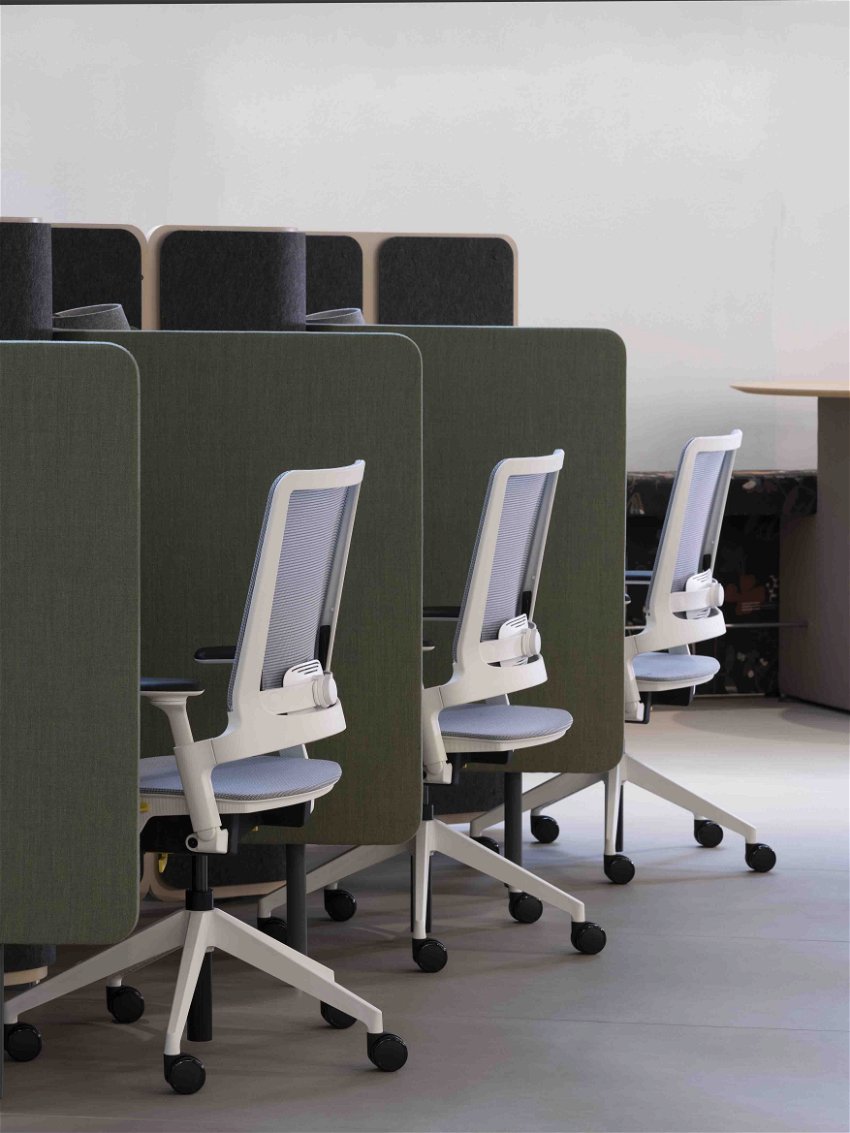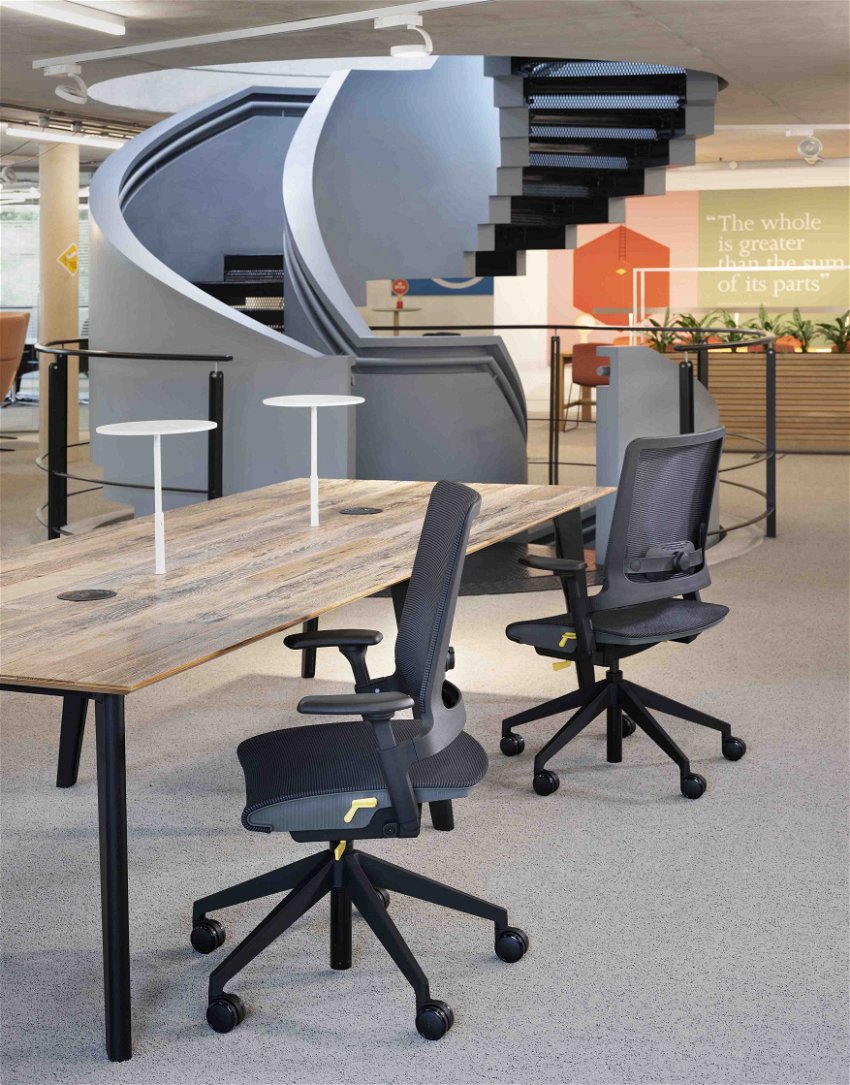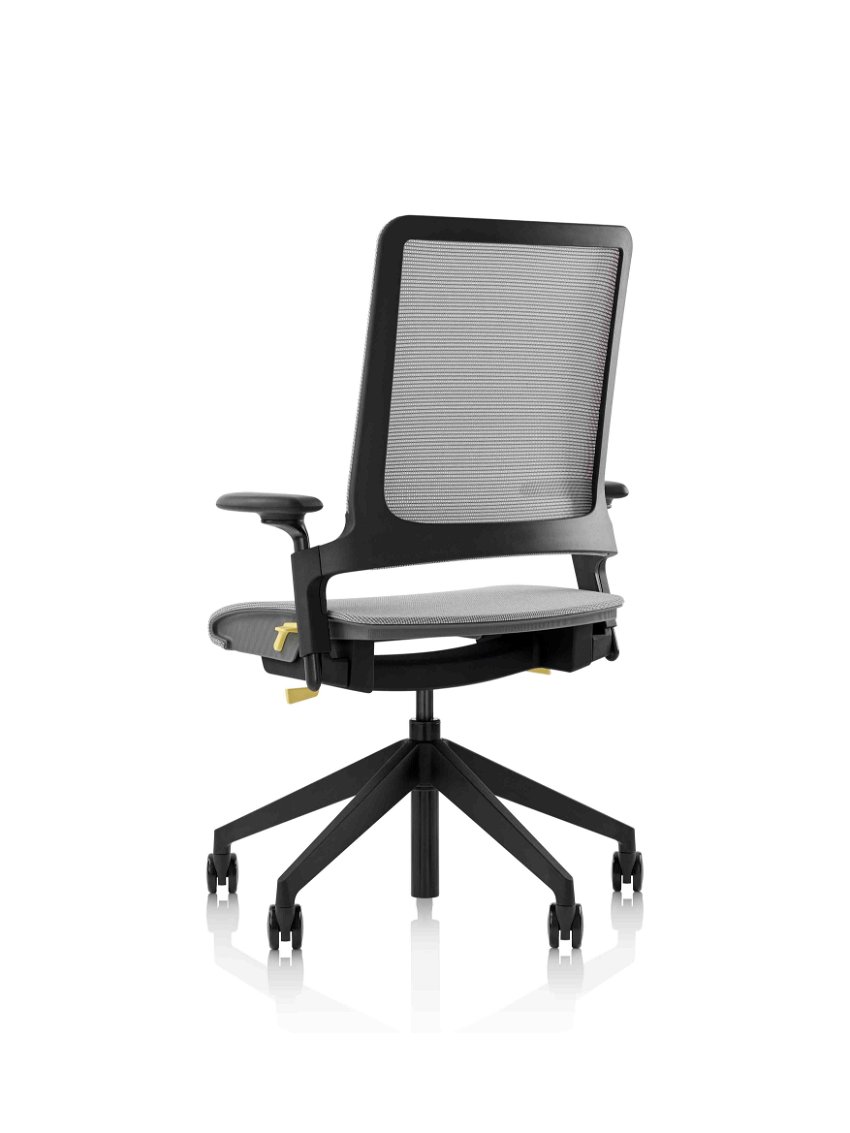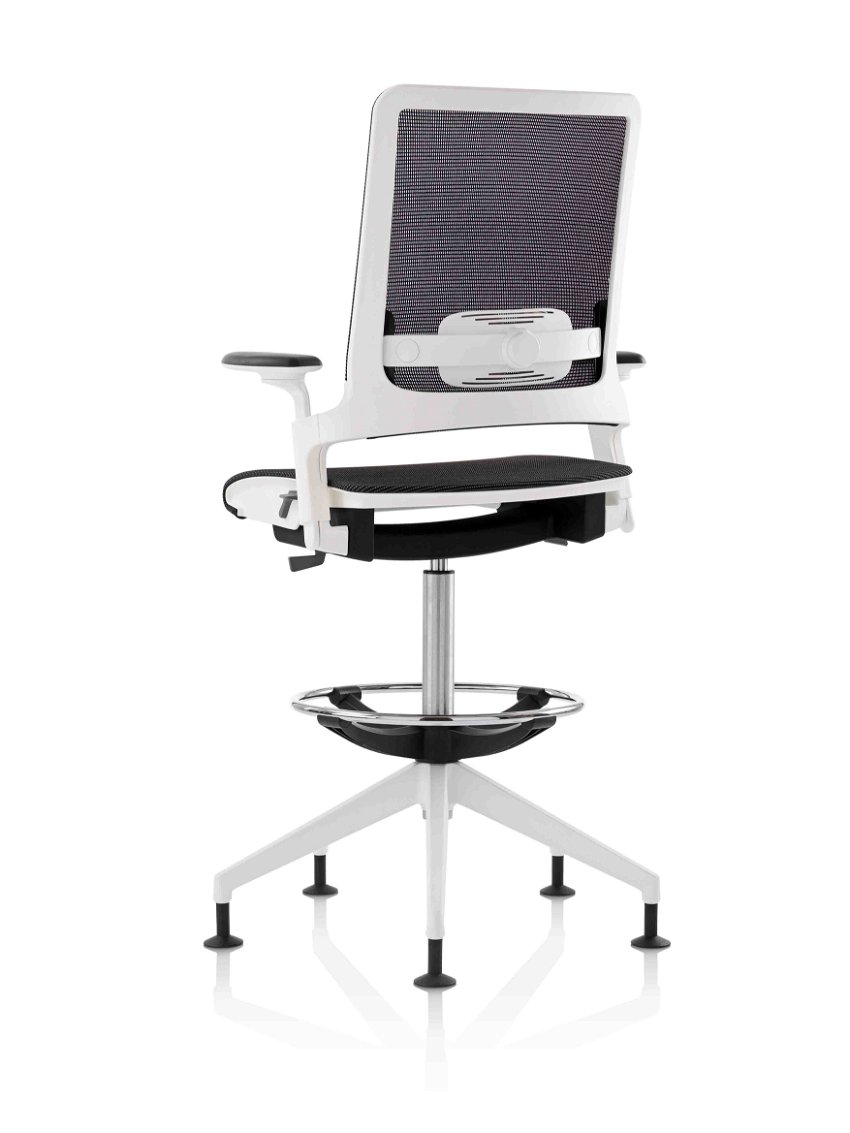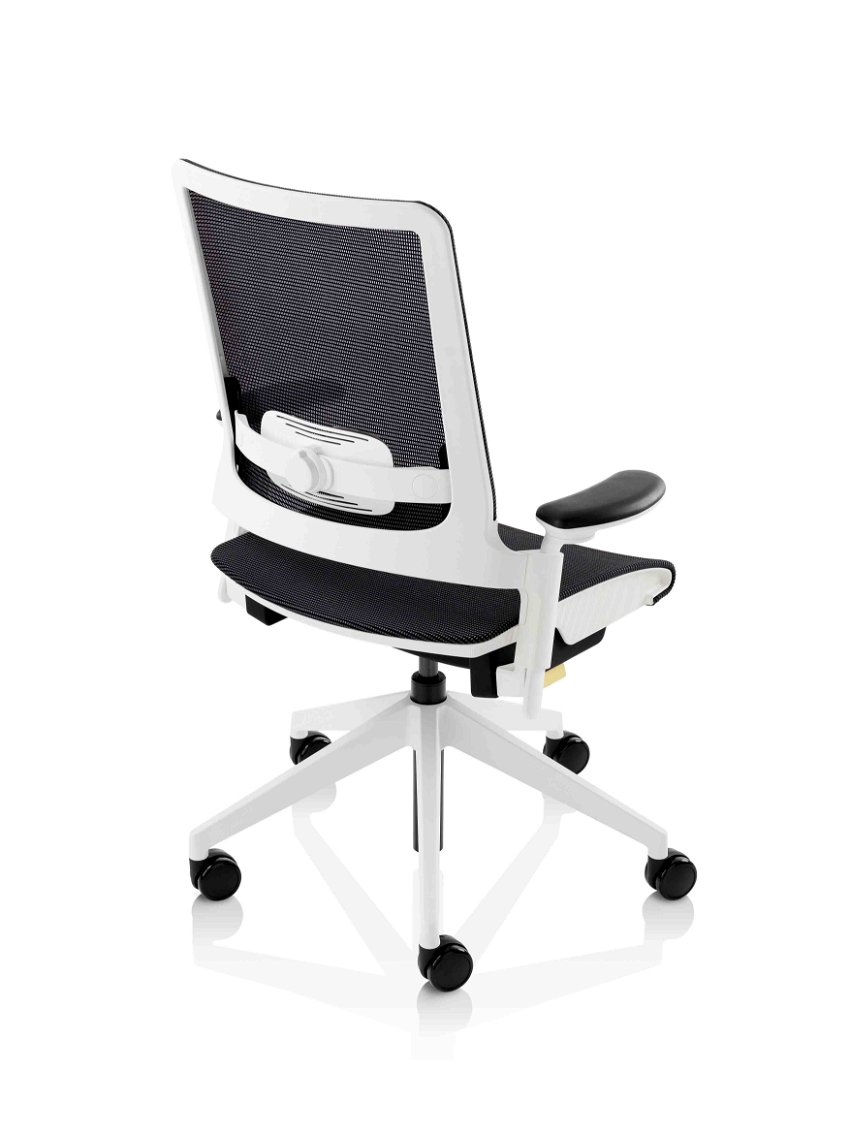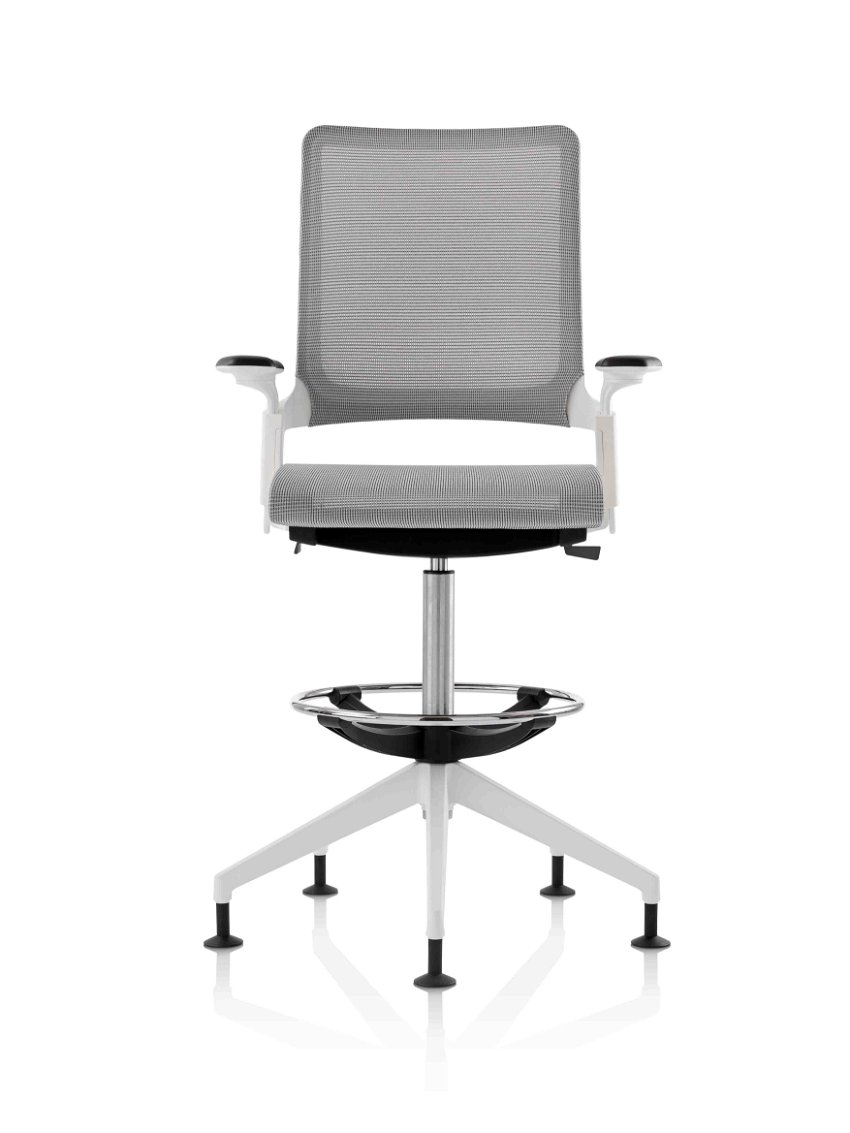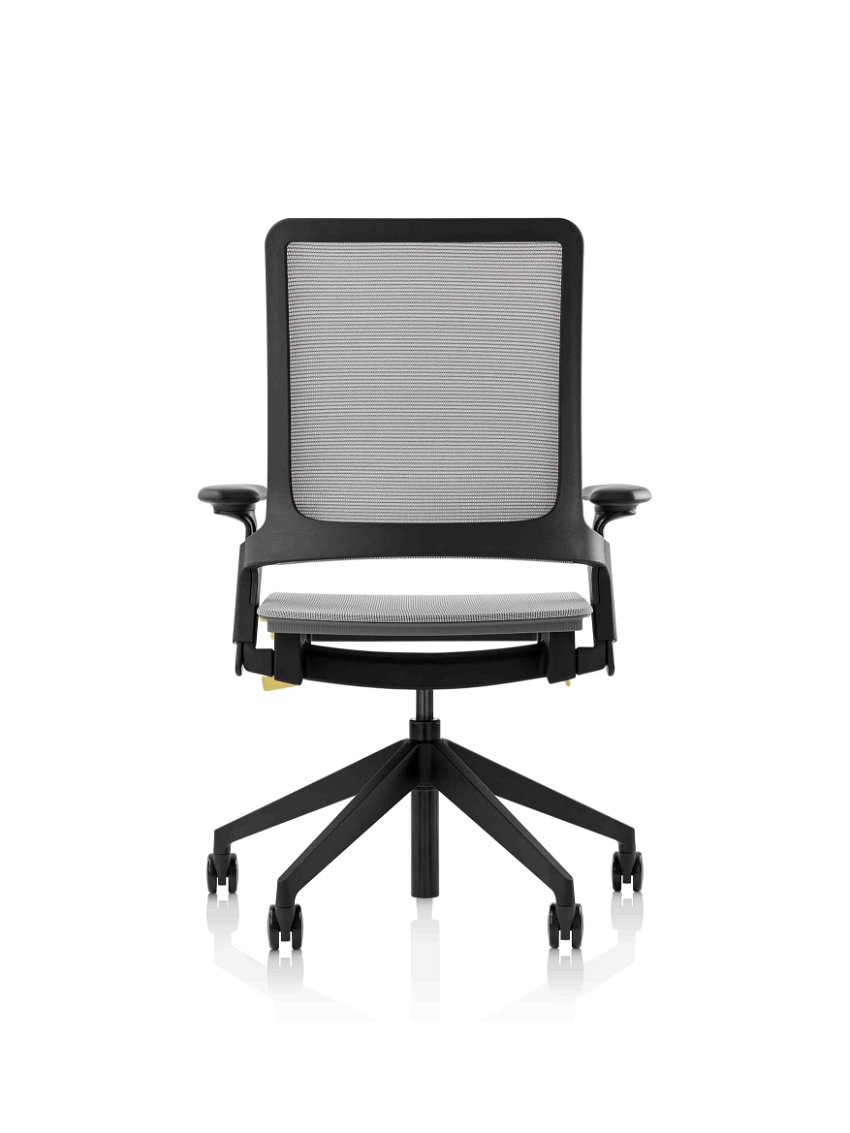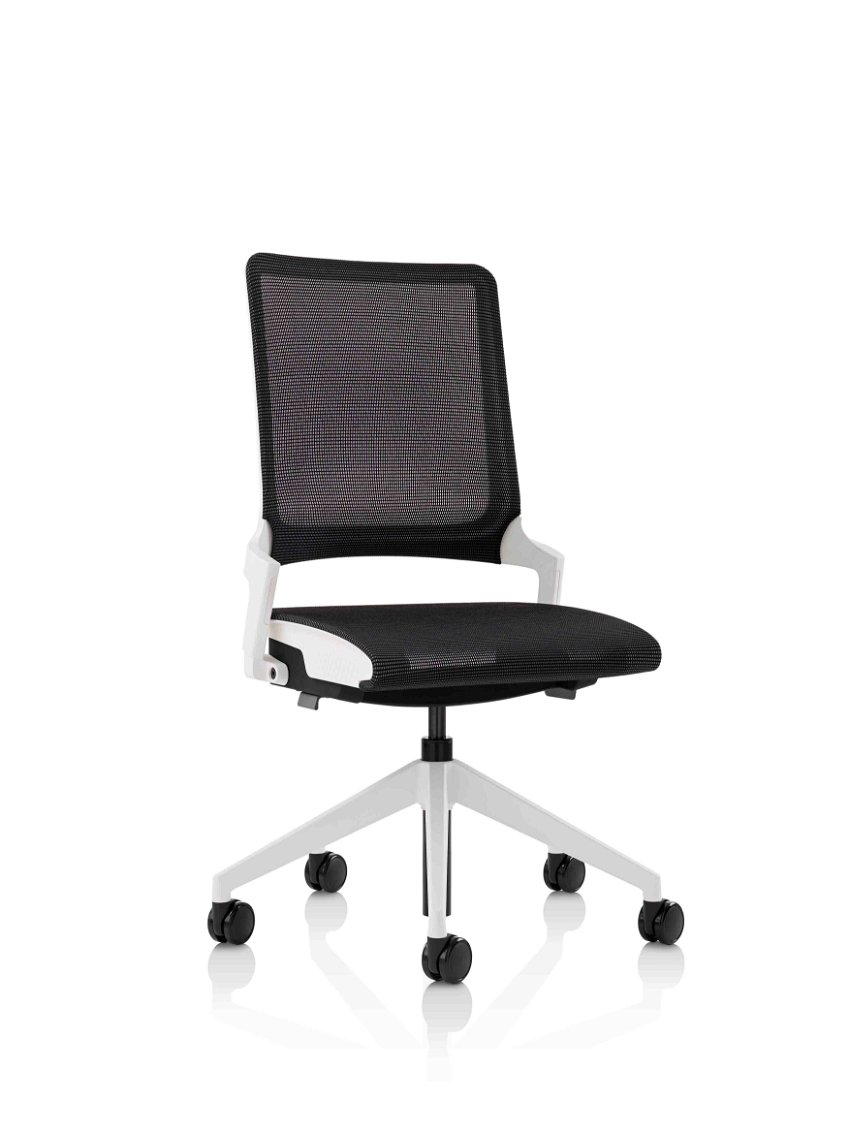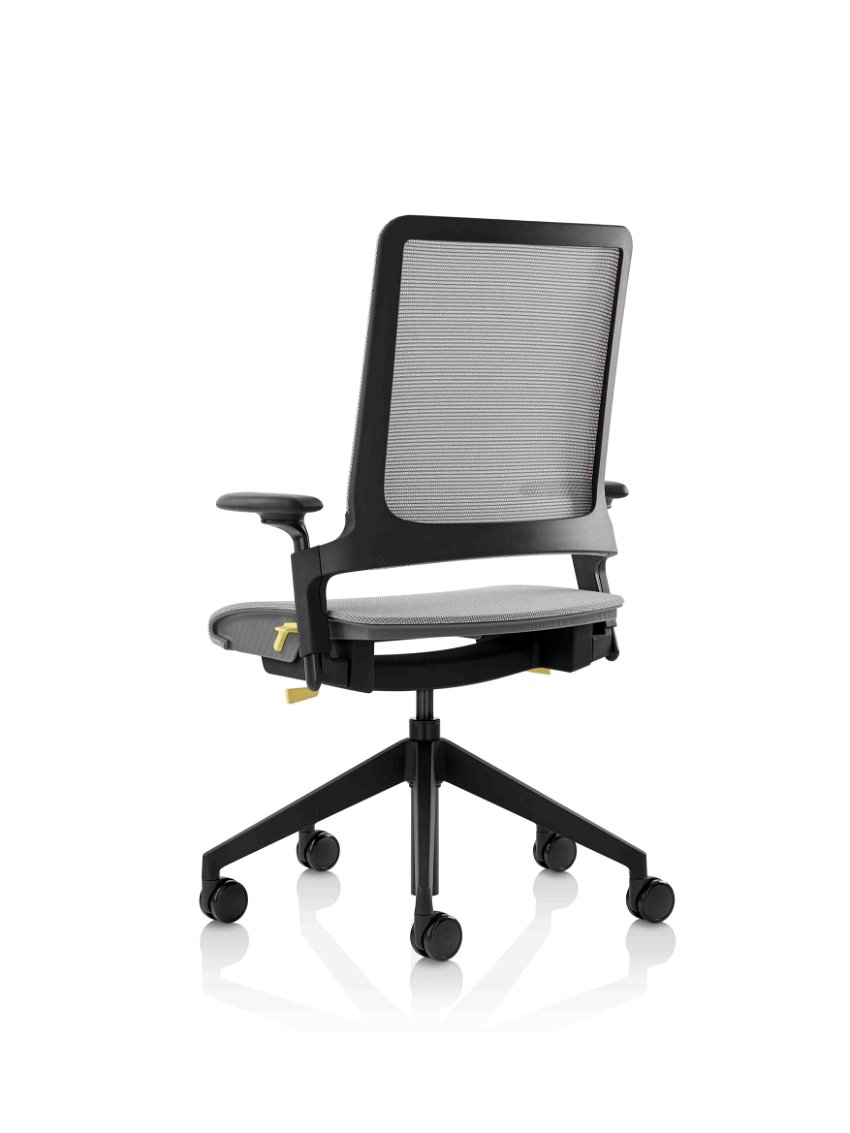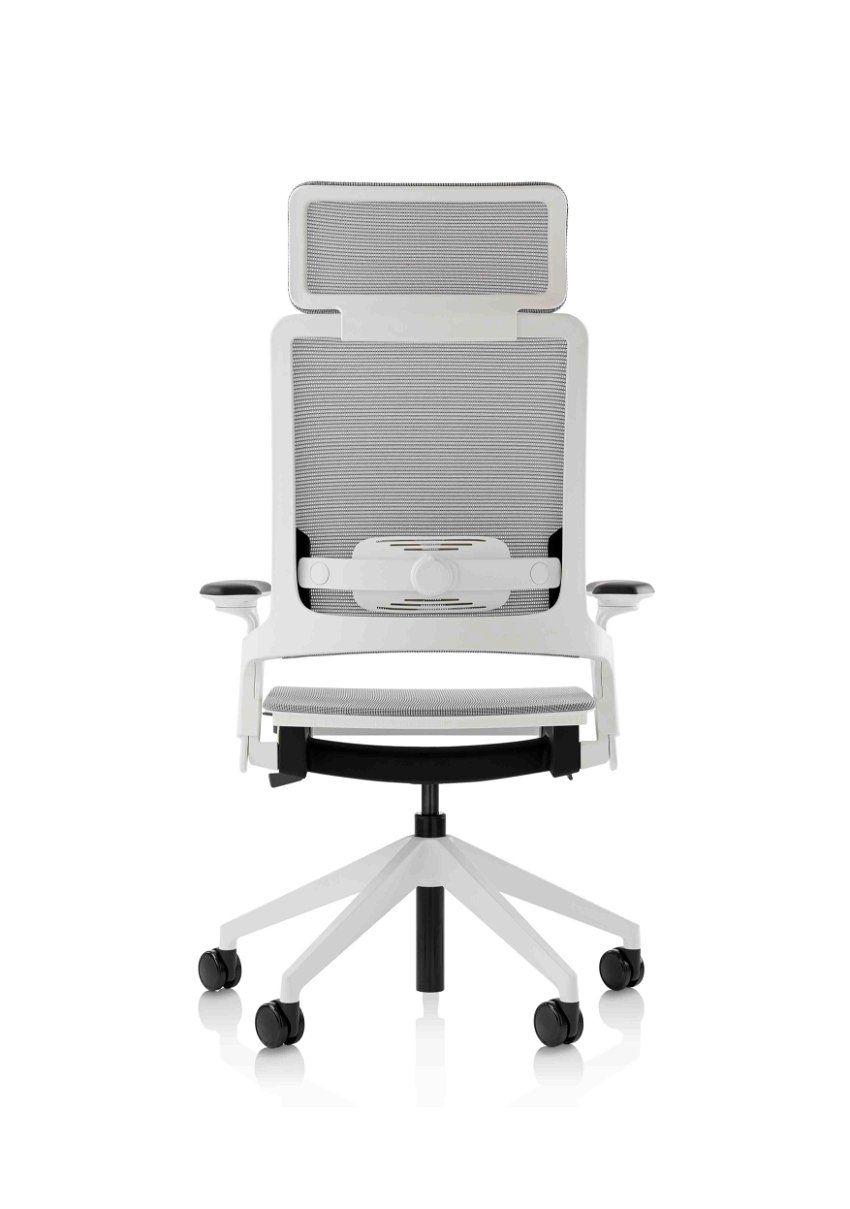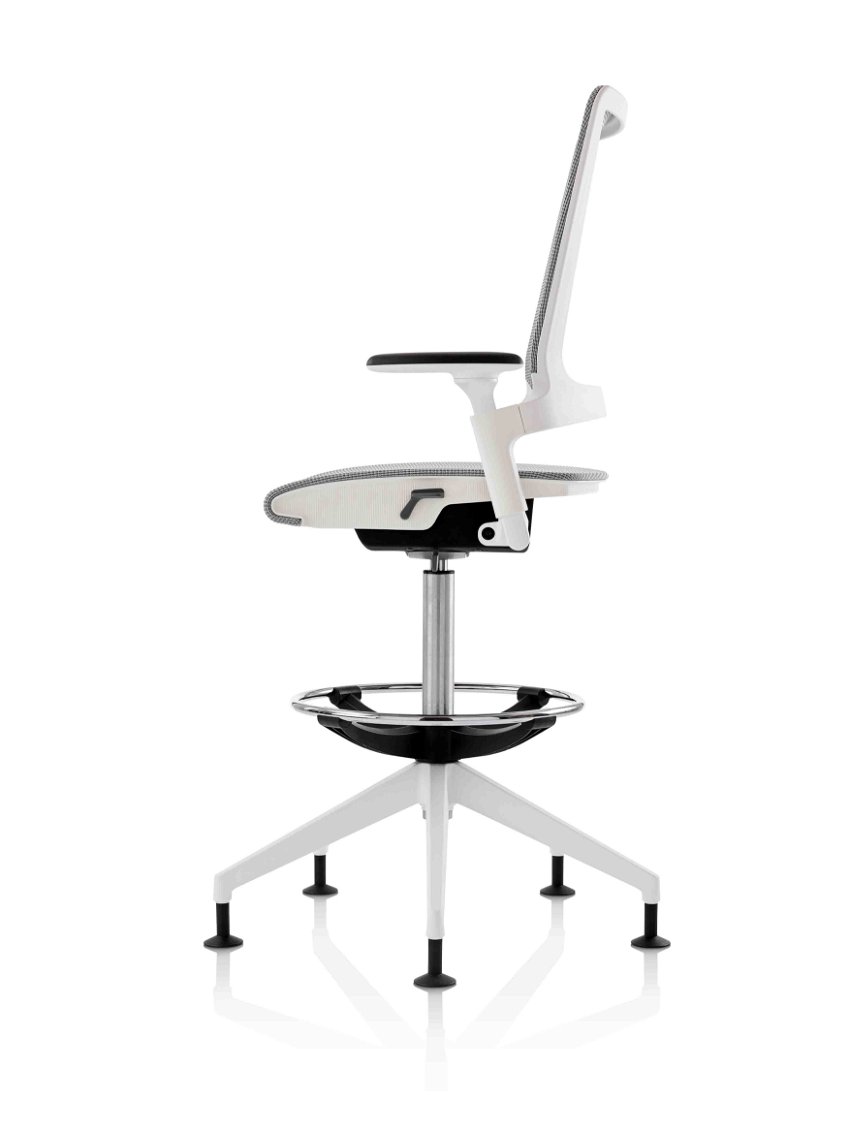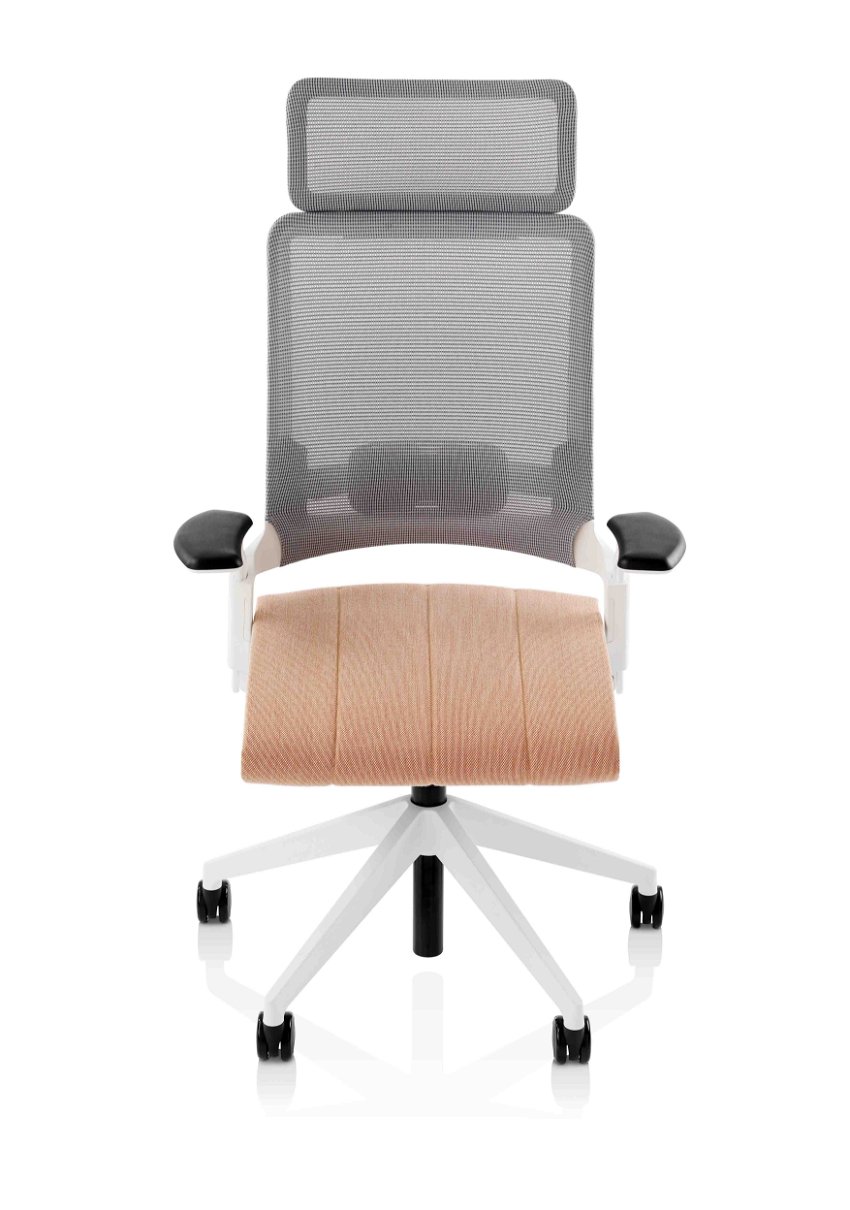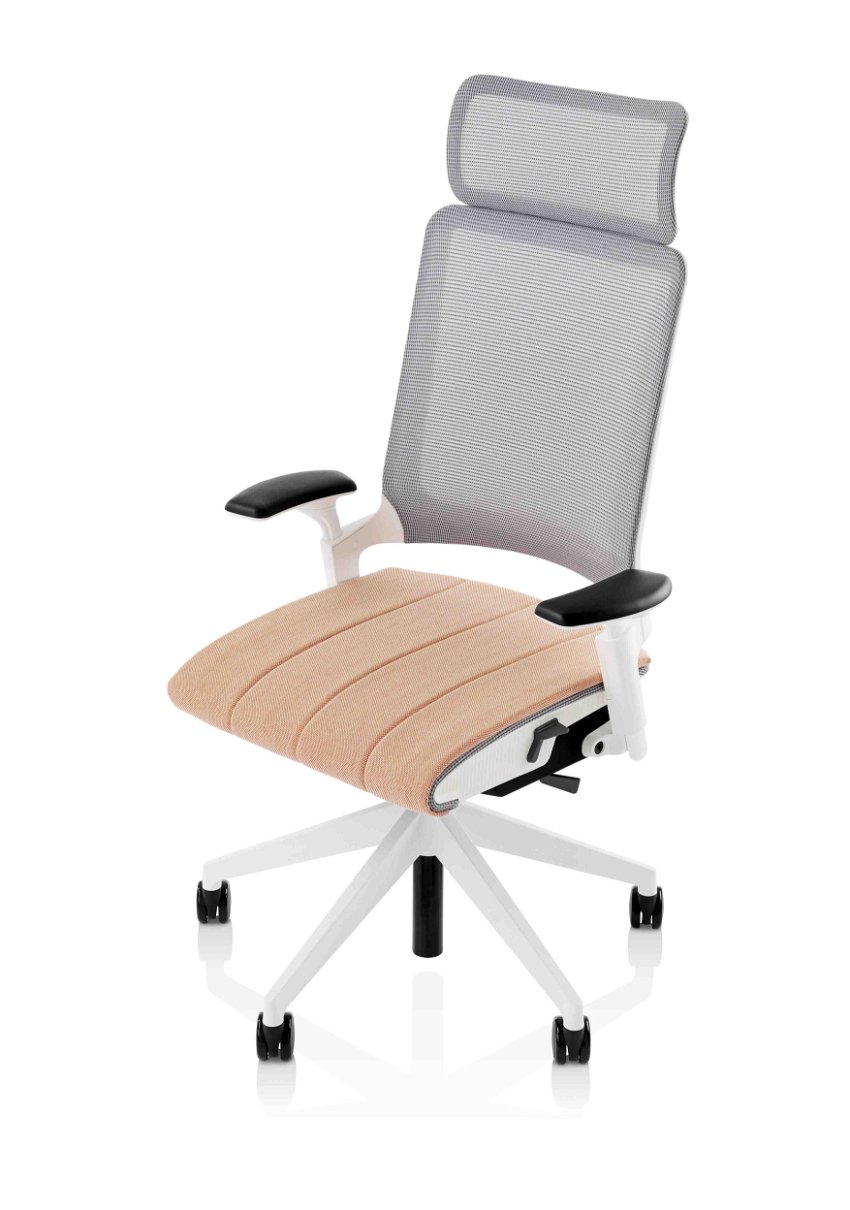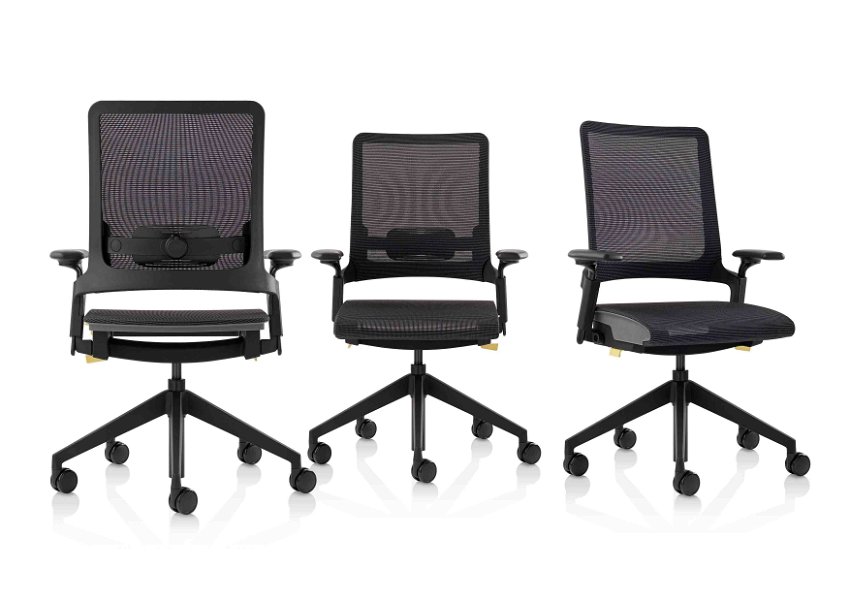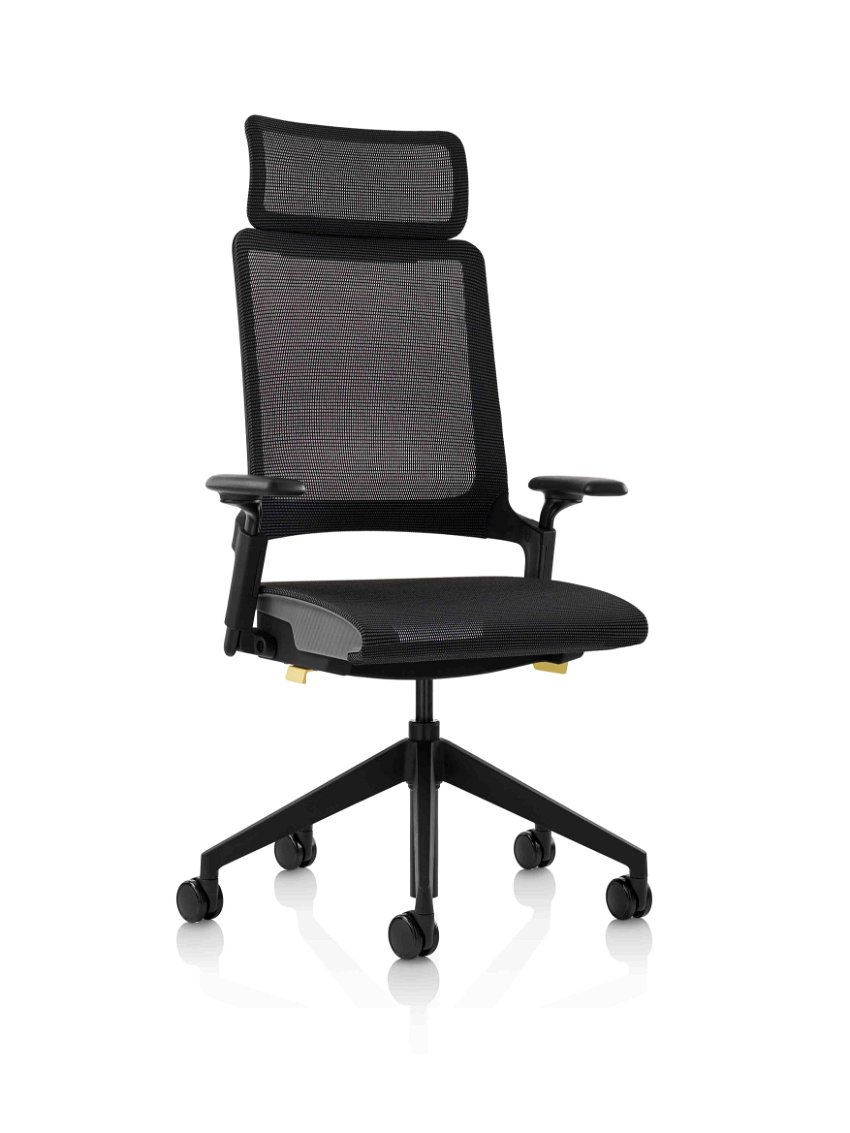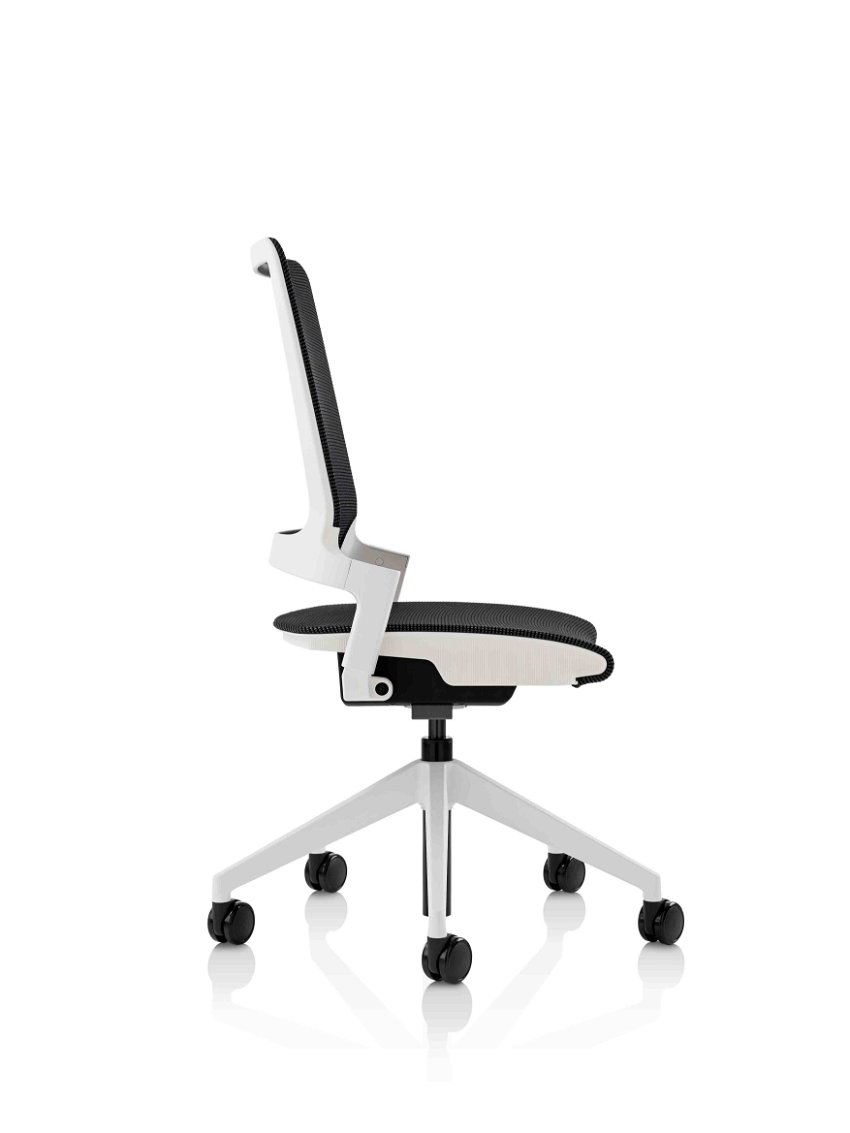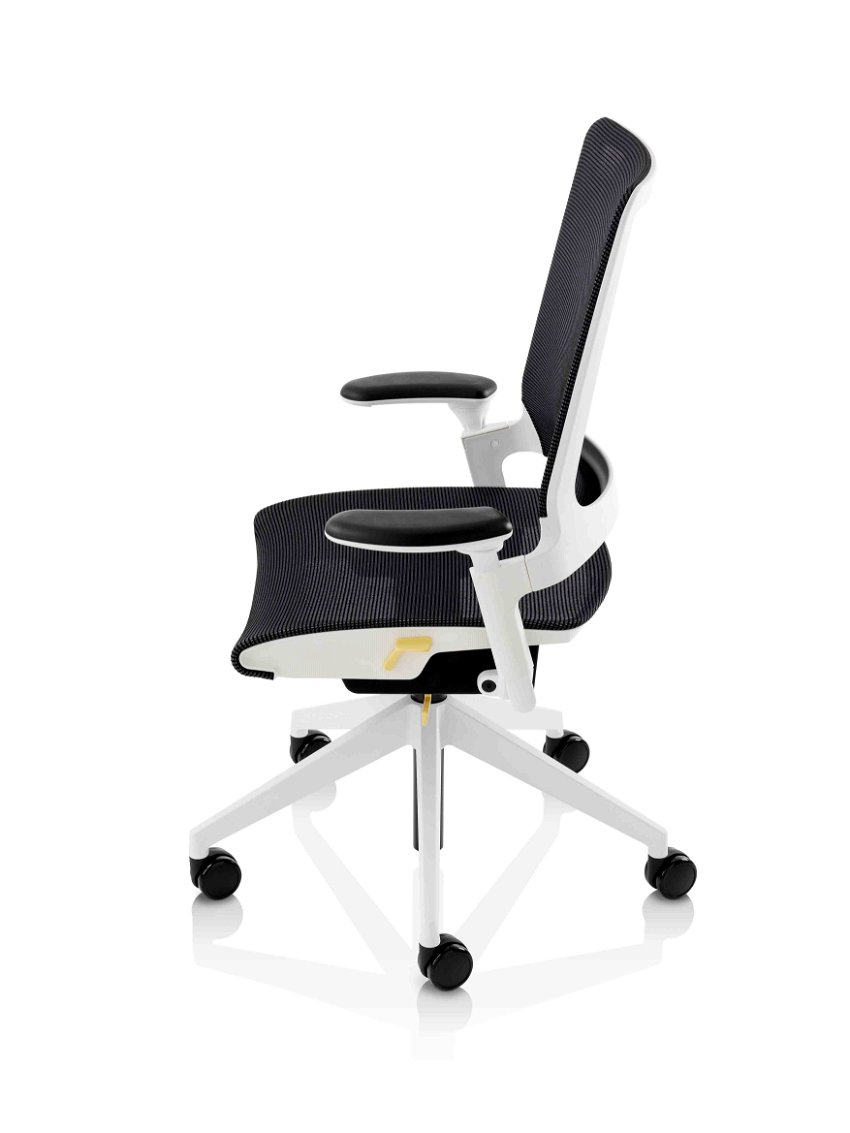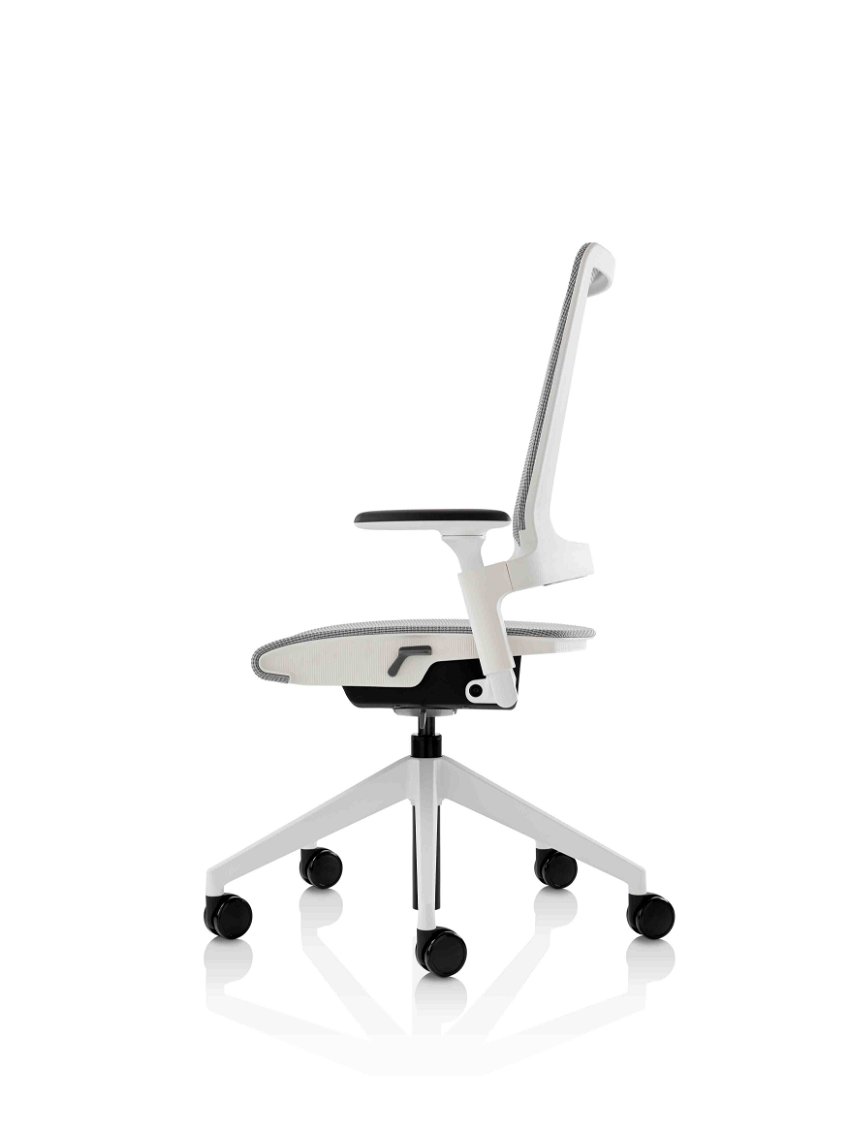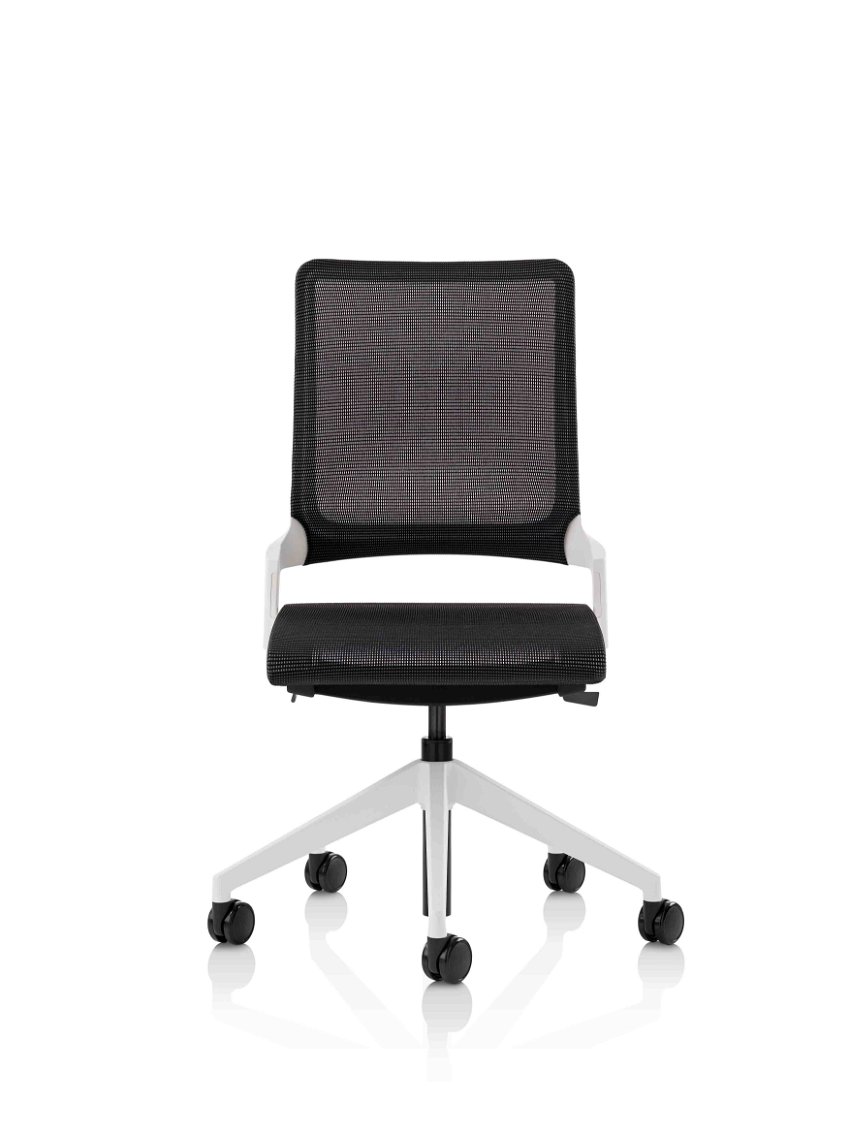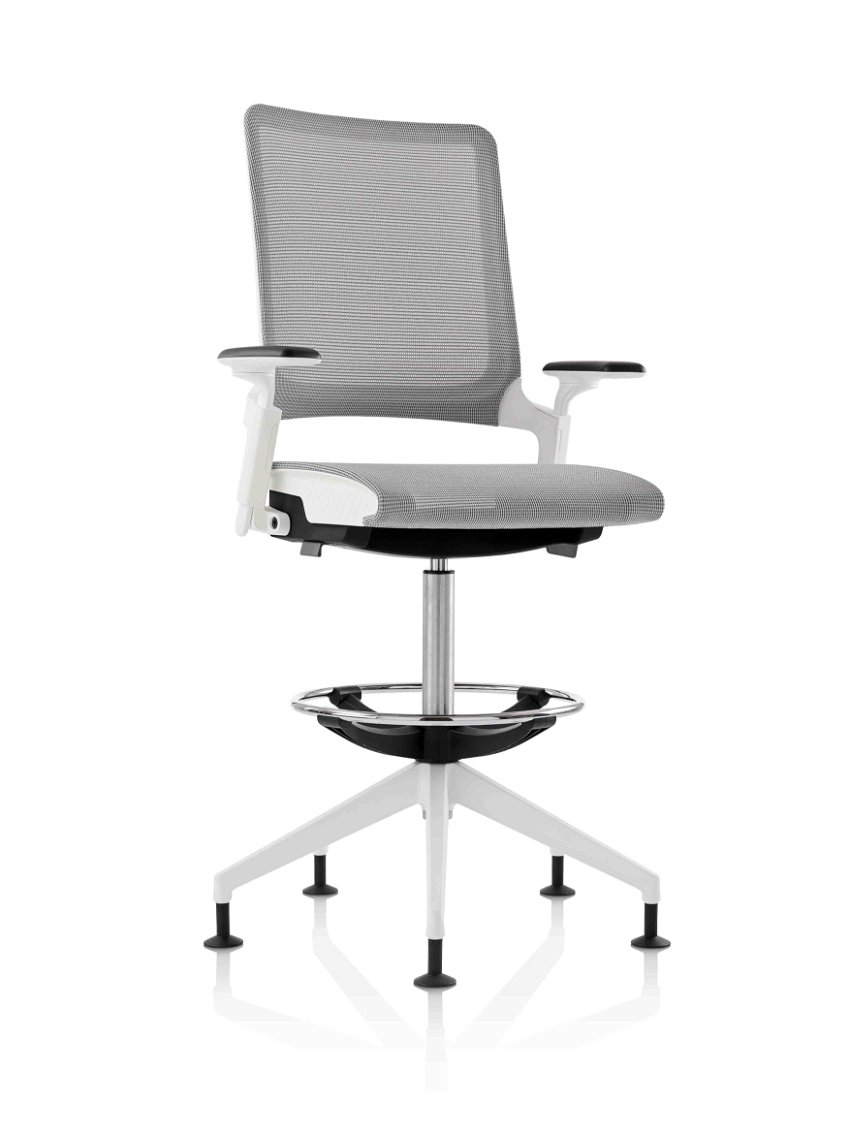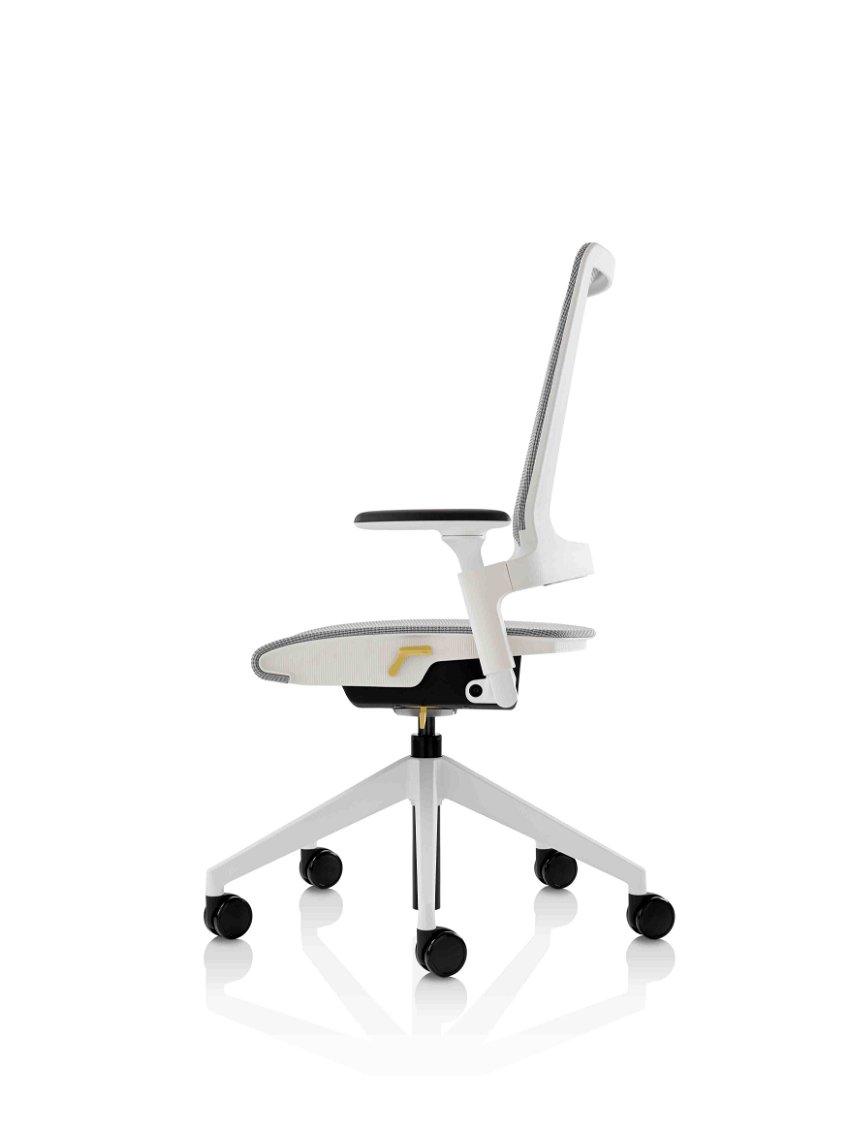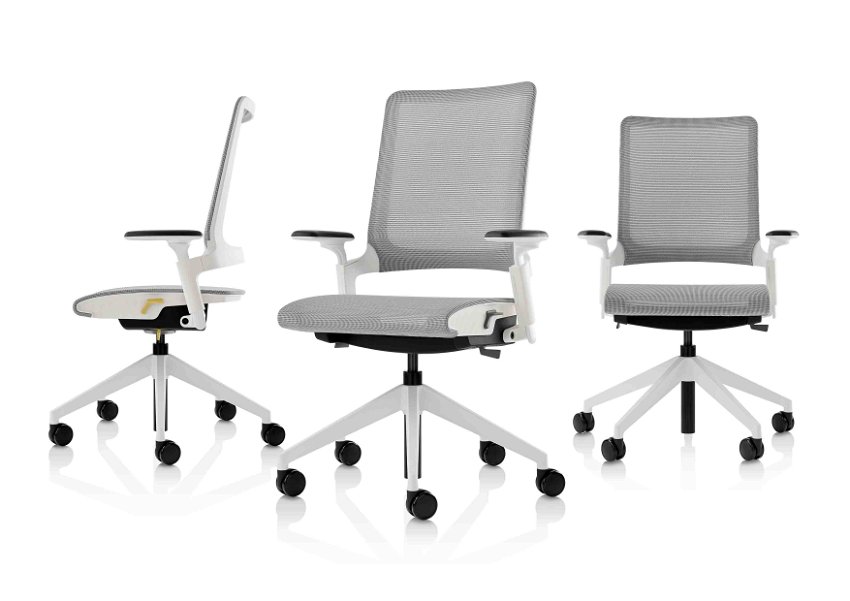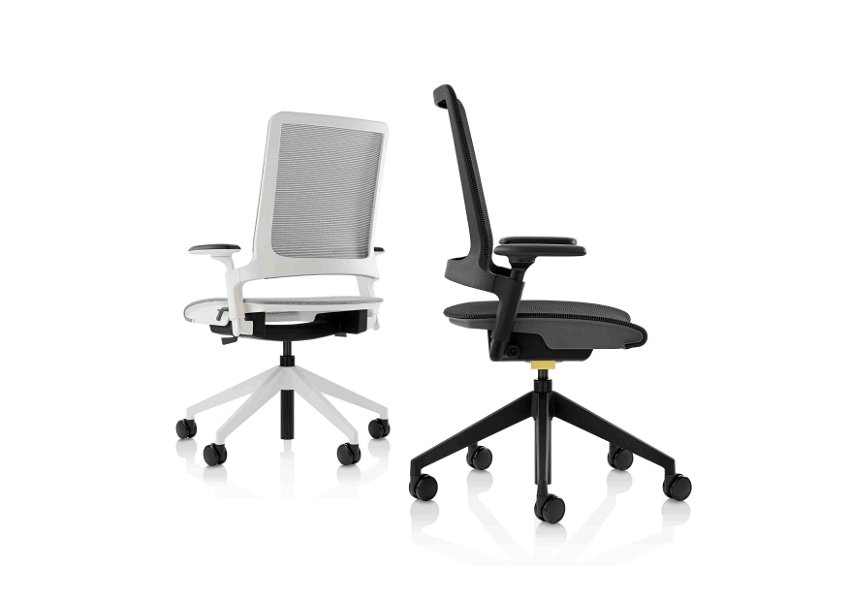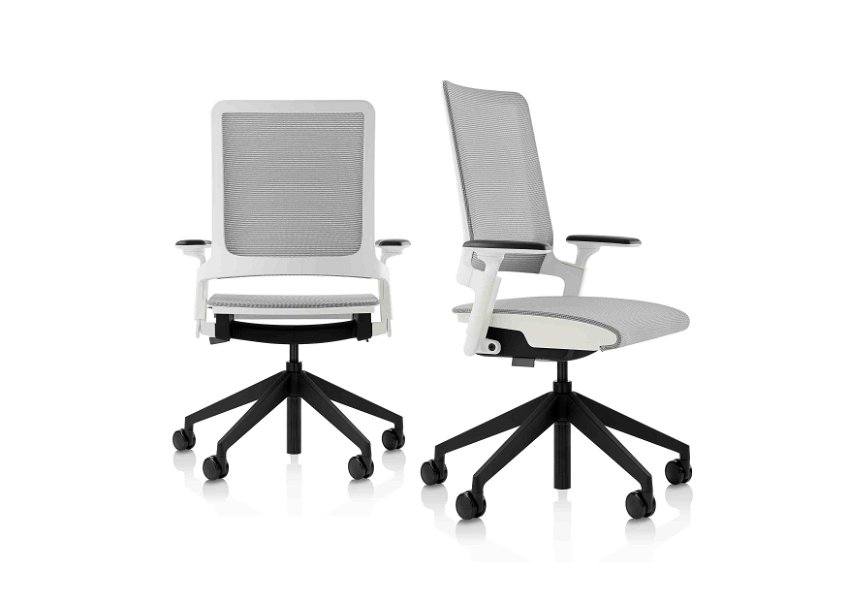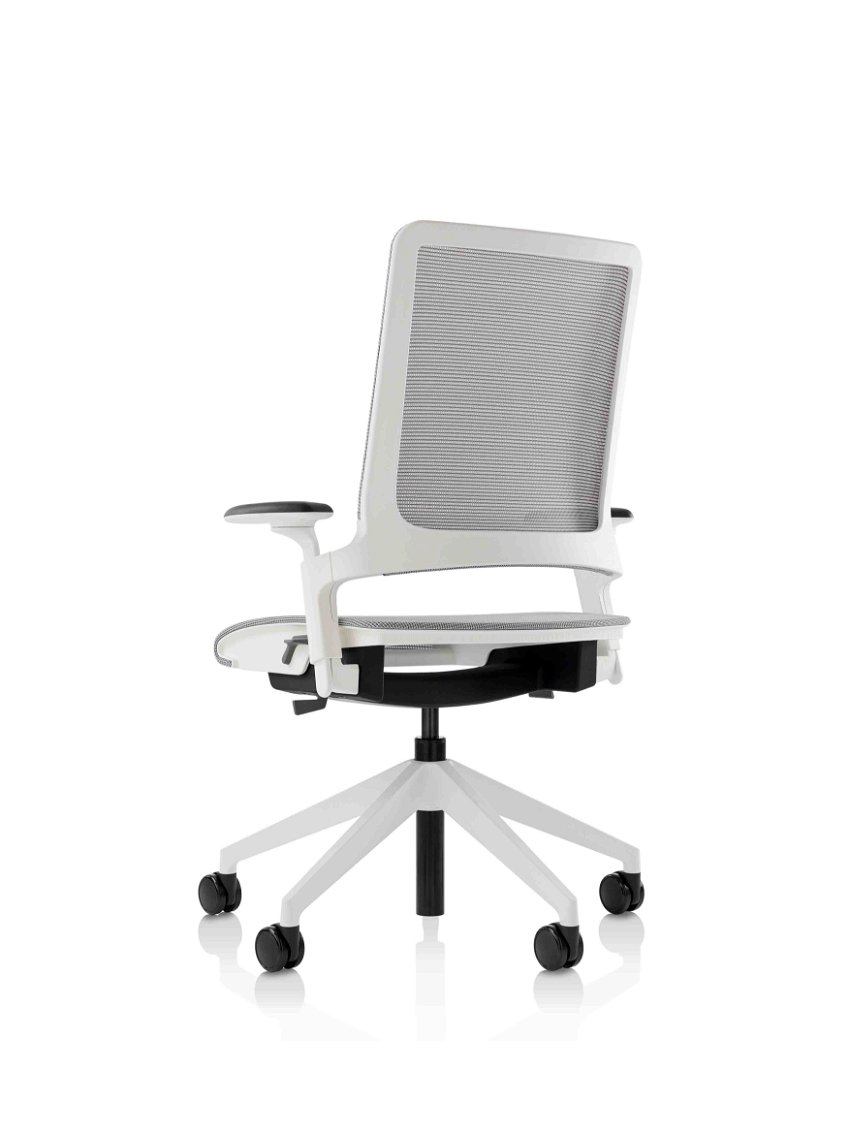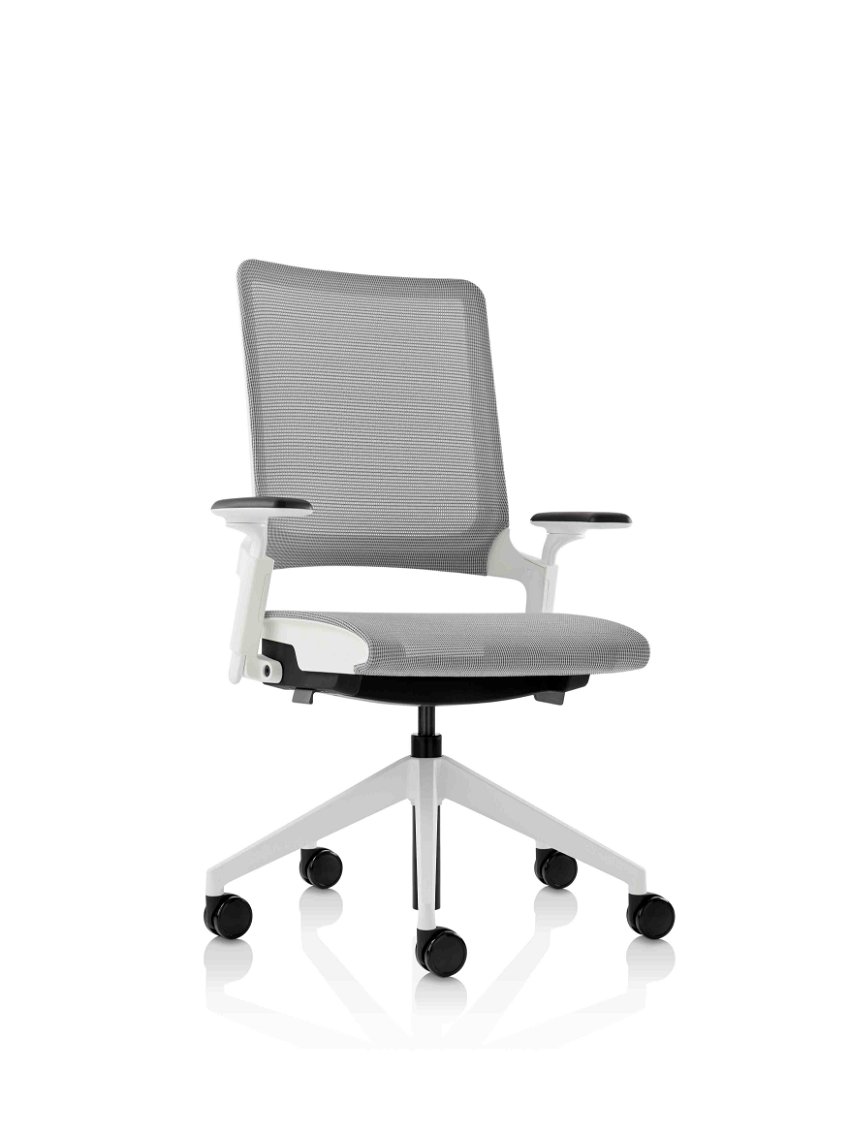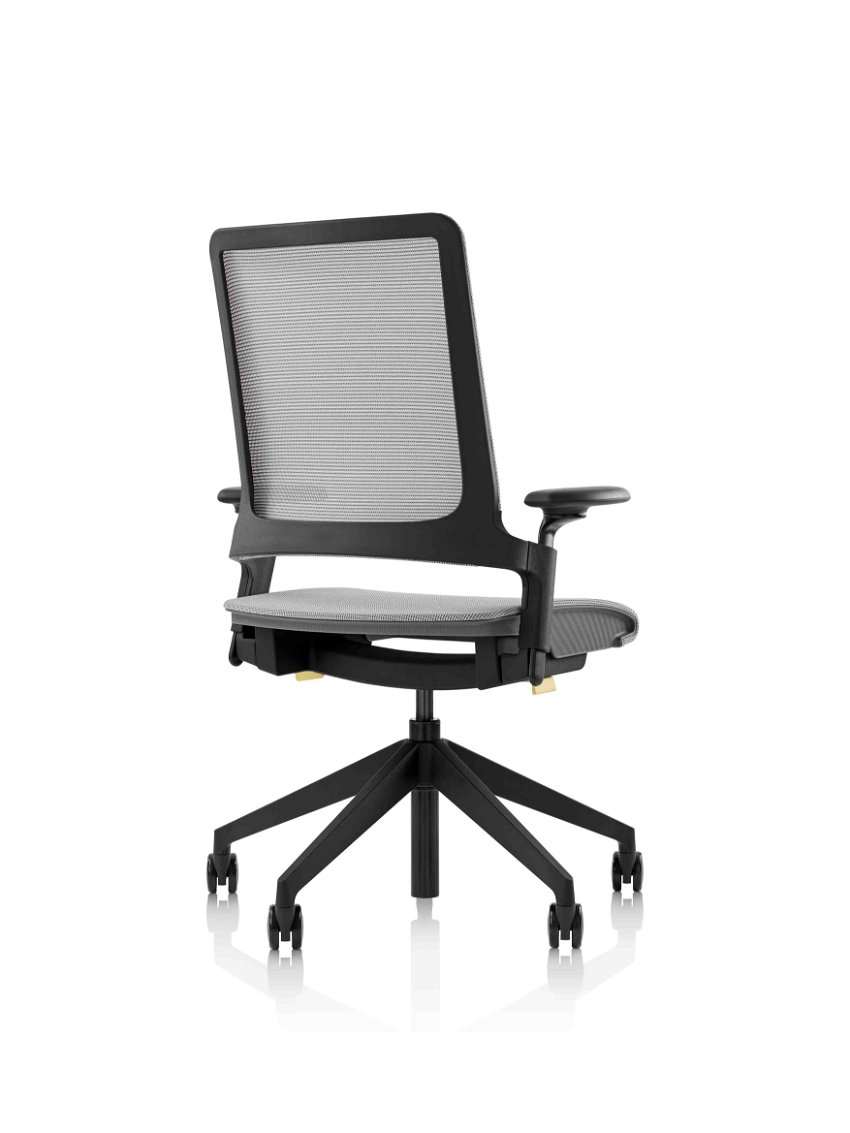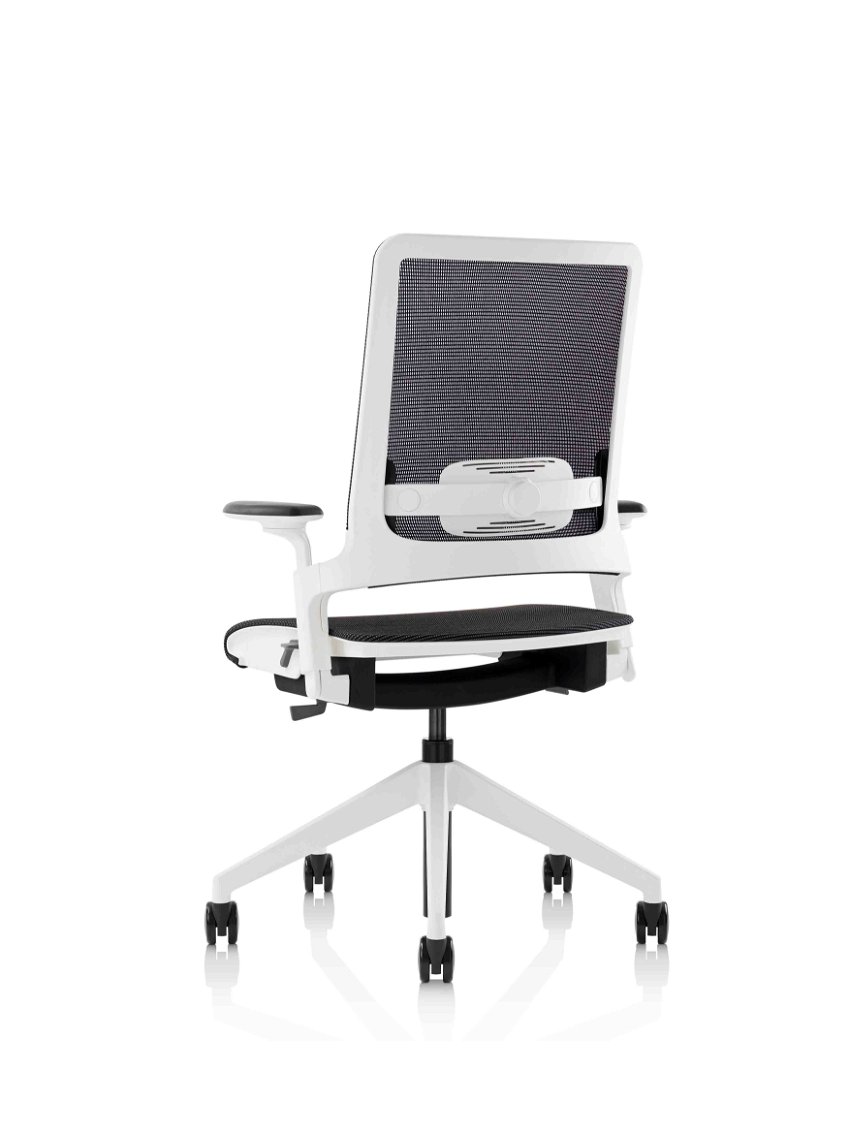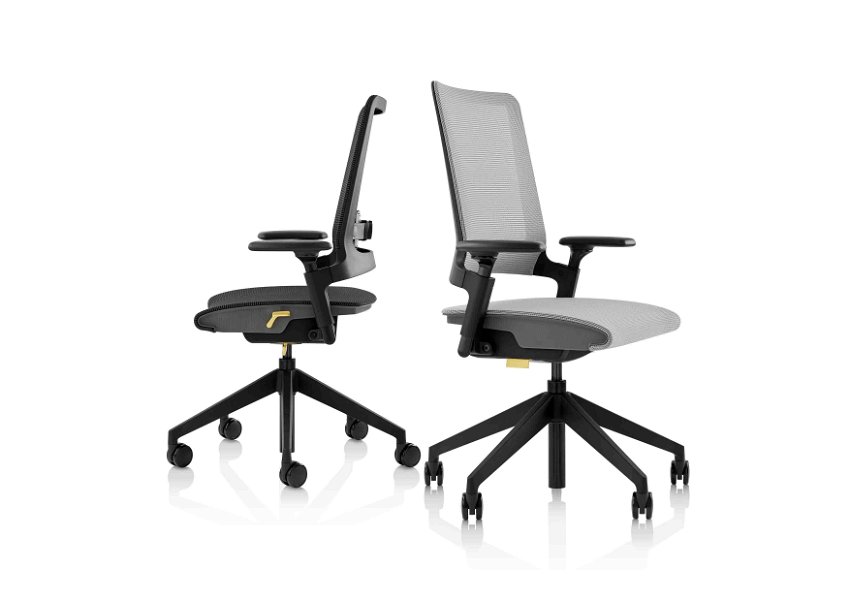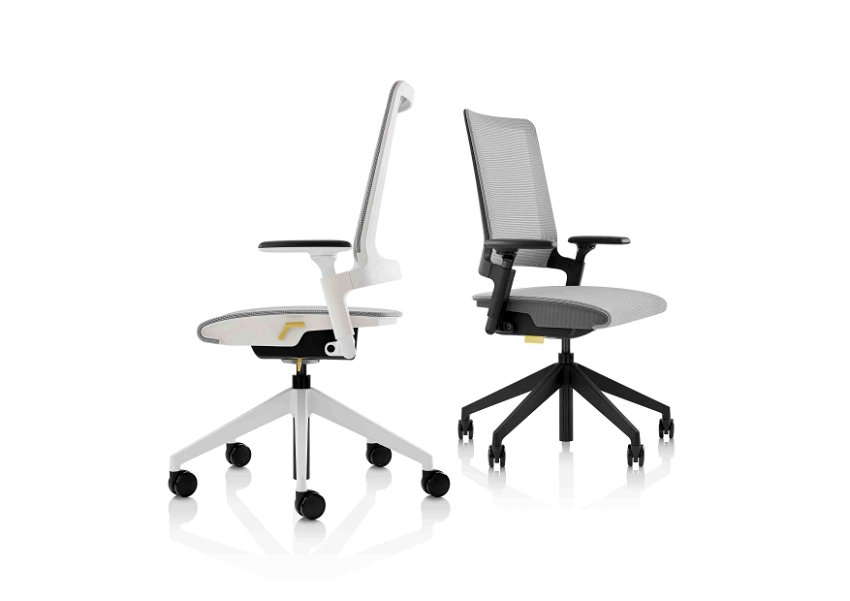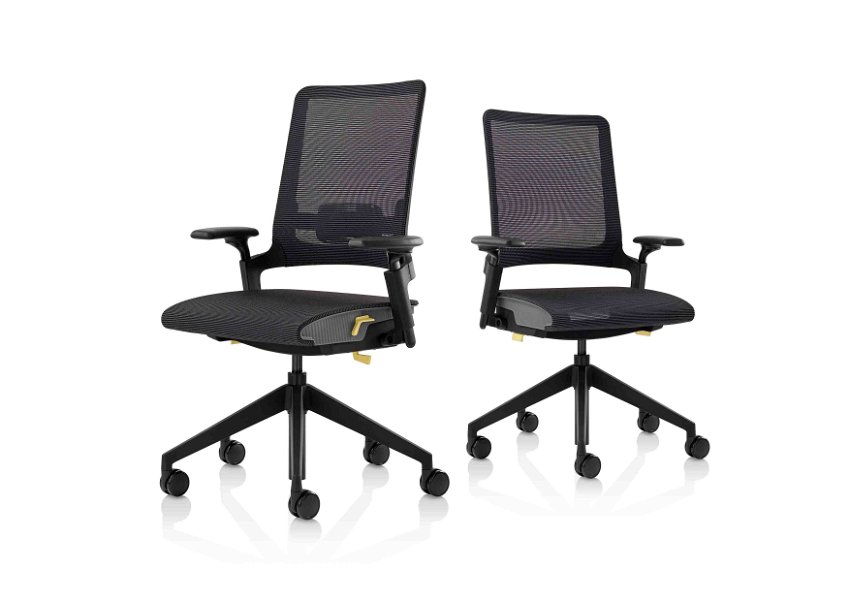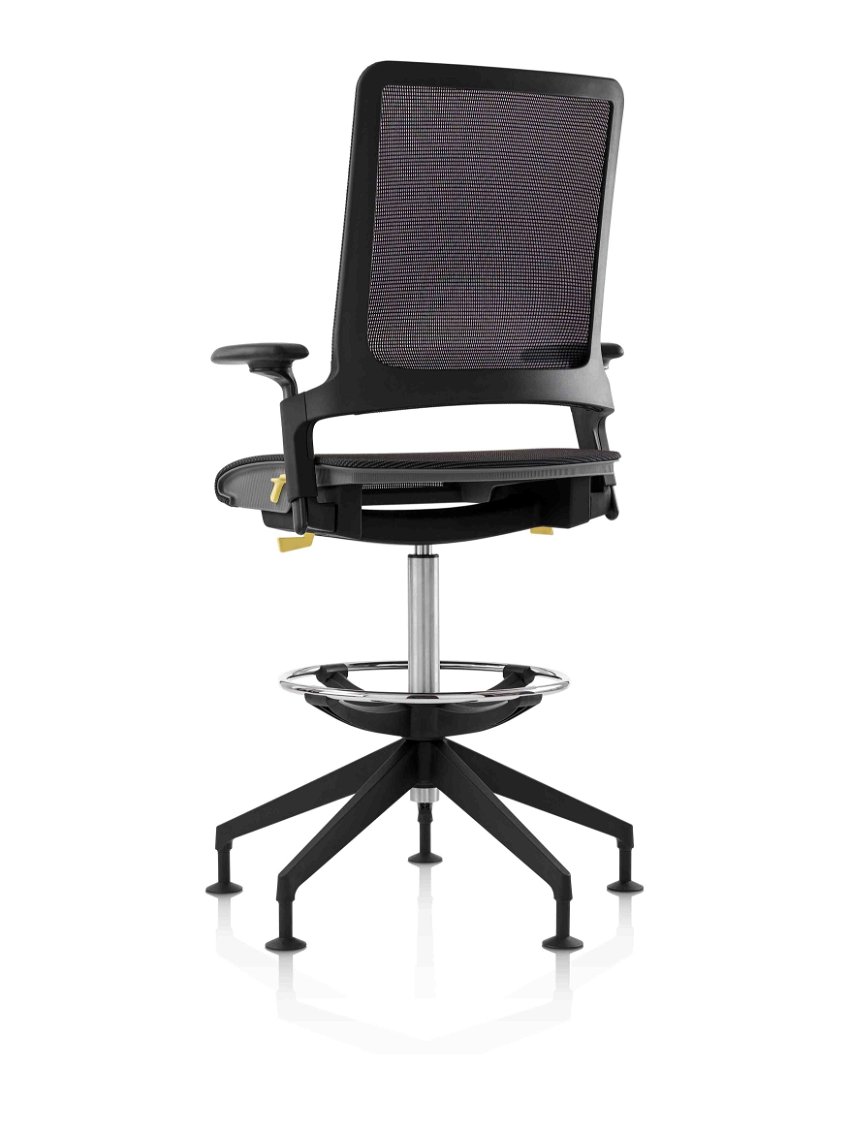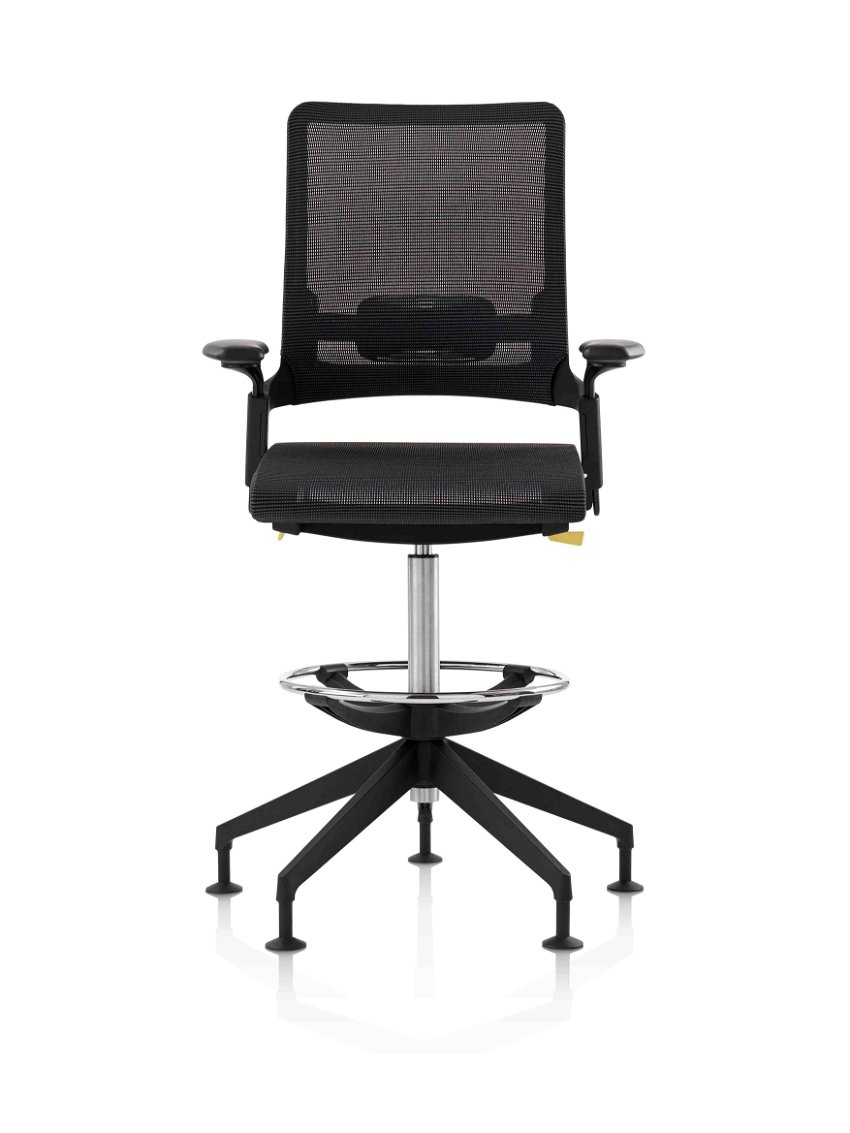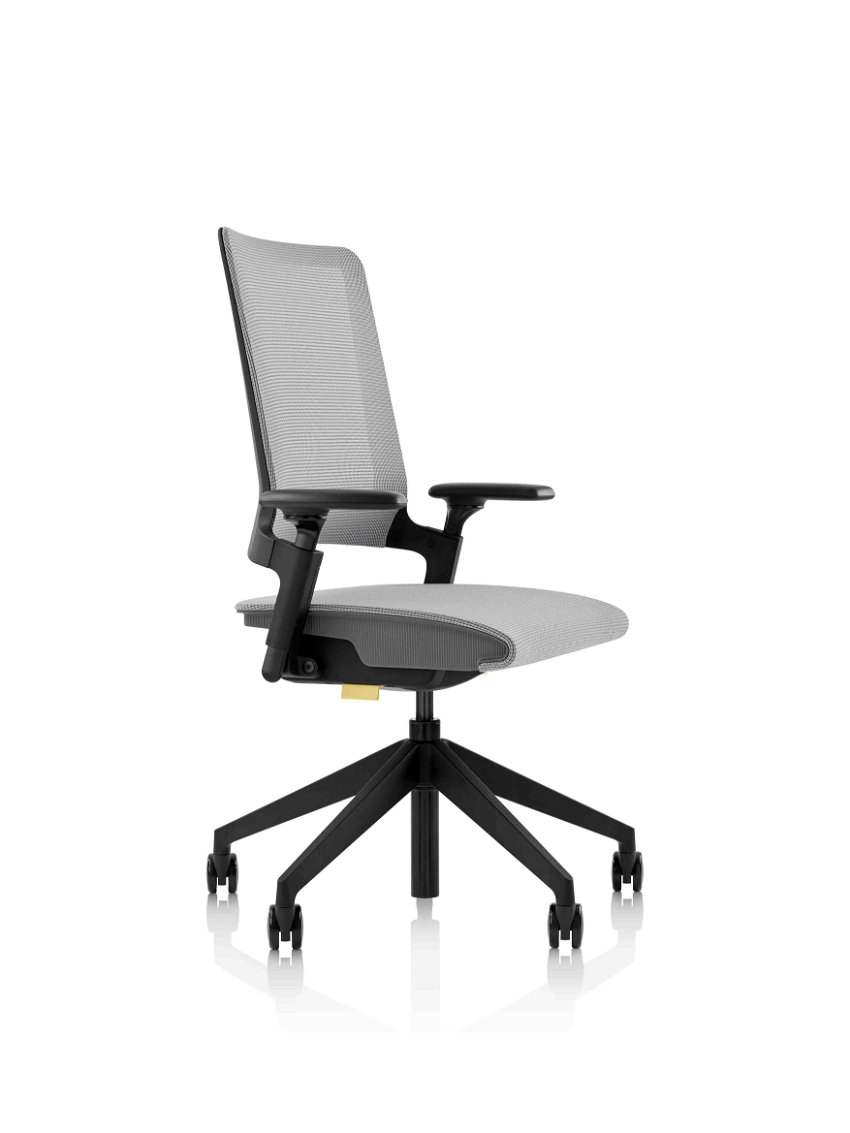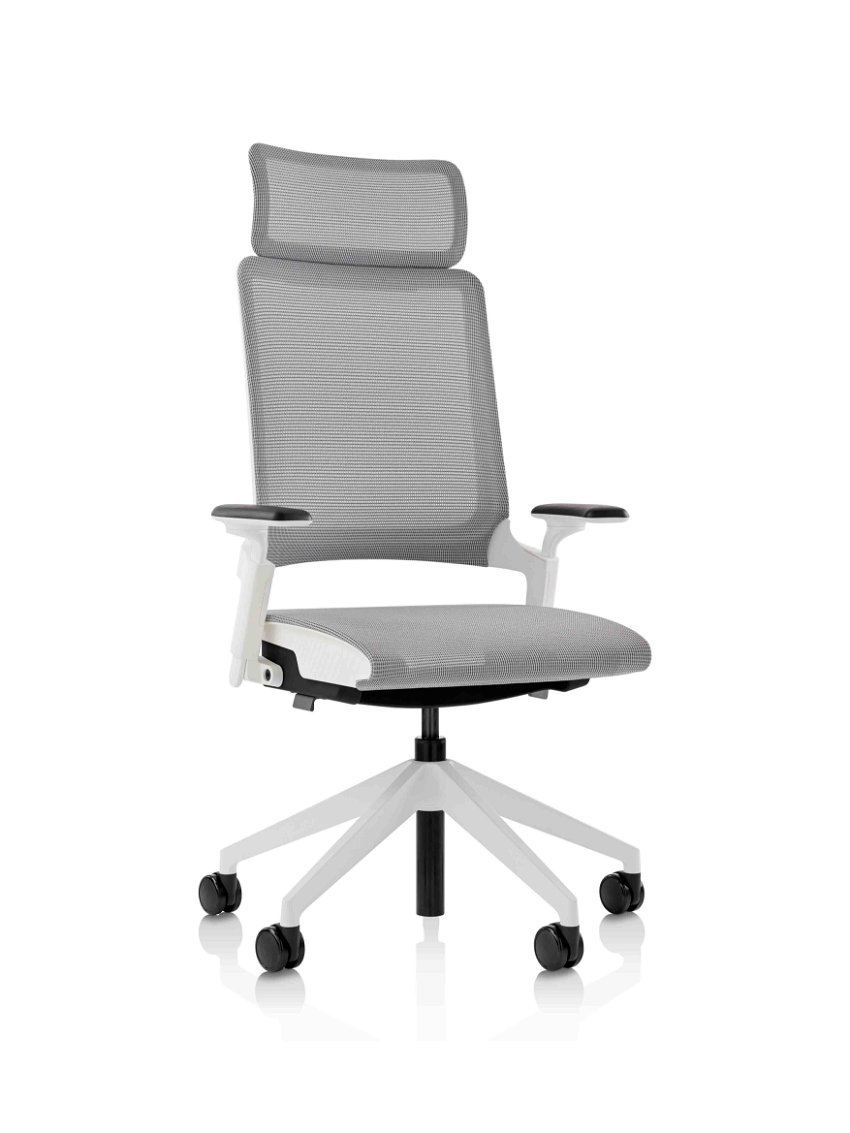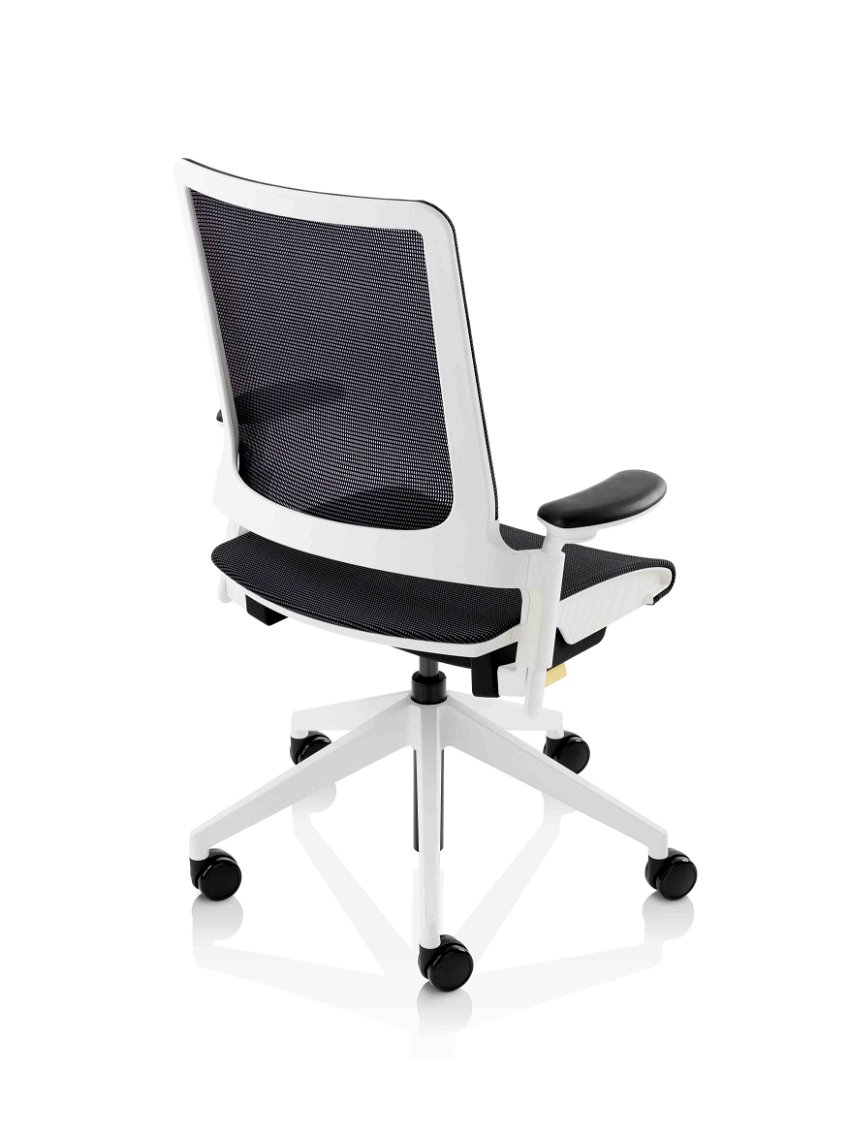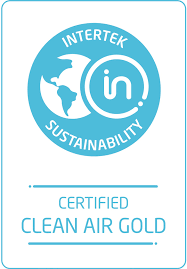-
Sustainable
Goods crafted with a focus on ecological responsibility and longevity. These products are deemed sustainable after being certified by various environmental bodies from across the world.
- CAD Models available
Overview
- Type
- Task Chairs
Despite its 125-year pedigree, the office task chair still presents designers with challenges. The key challenge today is how to realise a comfortable chair with a refreshing and engaging design, which also meets demanding upcoming international standards.
Contemporary task chairs can be either simple or complex, and in Kirn’s case we opted for beautiful simplicity. We had four reasons for doing so:
1. To be environmentally smart
Orangebox wants to work within our planetary boundaries, rather than ignore them. We are commited to advancing our product development and manufacture towards the standards required by the Circular Economy, and also to designing out as much waste and pollution as we can from the manufacturing process.
Virgin plastics consume resources heavily at every stage of their manufacture, from the extraction of crude oil to the refining and industrial process required to transform this into a hard material. Manufacturing task chairs from virgin plastic therefore involves excessive emissions of CO2, contributing to the acceleration of climate change.
Kirn, however, is manufactured in Econamid®, a next generation range of plastics made entirely from long-term and extensively resourced recycled fibre. As a result, Kirn’s manufacture produces 97% fewer CO2 emissions than that of a task chair made from virgin plastic. But it’s not just Econamid® that makes Kirn environmentally smart: Kirn is designed to use as few materials and resources as possible, and uses recycled materials wherever feasible.
Kirn is also generationally smarter. The design and manufacture of each new Orangebox task chair is a four-year cycle, building on the most successful elements of its predecessors, and at the same time exploiting developments and innovations in manufacturing and material science. Kirn follows in the footsteps of G64, Joy, Ara, Do and Eva in redefining what a great task chair should be. It is an exemplifier of progressive ‘light-touch’ environmentally smart manufacturing.
Kirn is inherently resilient, manufactured with the requirements of both service and end-of-life in mind. Its materials are all high quality and its major elements can all be quickly and simply replaced or upgraded, giving your chair a long, hassle-free working life. When it does eventually reach the end of its first life, Kirn’s simple construction and low part count helps facilitate part separation, recycling or remanufacturing. Large parts carry material identifier marks, and the materials selected and the fact that it’s been designed for disassembly means 98% of the chair can be recycled. Even its five-star-base has been designed to require no additional metal inserts!
2. To be comfortable and easy to use
With shared-use seating increasingly the norm in collaborative workspaces, Orangebox is committed to creating a chair that every user will find both intuitive to operate and super comfortable to sit in.
Kirn’s soft-touch suspension mesh has been developed to provide an excellent balance of comfort and support. The open mesh provides enhanced heat dissipation, while the soft-touch fibres deliver subtle, hardwearing support. The seat and back frames have been carefully shaped to work with the mesh, providing the widest range of user support, including great upper back support, a well-defined lumbar profile and an effective waterfall on the front of the seat. Controls are coloured to make them easy to identify, and carefully shaped and located so they’re intuitive to operate.
For those who require a more personalised set-up, Kirn can be specified with an air-cell lumbar option that delivers 80mm of height and 20mm of depth adjustment. The fixed volume air cell uses air displacement to maintain optimum support and constant lumbar contact as the user moves in the chair.
Kirn can also specified with a multi-adjustable arm, which delivers 100mm of vertical height adjustment with a double articulating pad, allowing an even greater range of width and positional control for the user. The whole pad can be rotated 180 degrees out of the way when not in use, or when elbow rather than forearm support is required. We’ve also made it quick and simple to swap between arm options.
3. To innovate with a new mechanism
In creating our first fully mesh chair, we have re-engineering the seat mechanism to exploit the transparency of mesh, while realising a new manufacturing and performance finesse in its architecture.
Kirn’s personality is expressed most clearly in its visual and material lightness. This is the result of replacing the usual bulky below-seat mechanism with two lightweight, fully weight balancing springs integrated into the framework of the chair. It’s a solution that both delivers a great sitting experience and makes the Kirn extremely simple to set-up and use. And, by connecting the seat, back and arms in an expressive, more streamlined and structurally refined way, it also allows material and volume to be stripped from the chair.
4. To allow an extended seat height range
The health benefits of becoming more agile and adopting multiple sitting positions in the workplace are becoming better understood, and as a result sit-stand desking is becoming increasingly common. While seating manufacturers have traditionally assumed that everyone will be sitting at a 740mm high desk, Kirn offers a range of 740 to 950. So, thanks to Kirn, workers can not only adjust their desk to their preferred height, they can also set their chair to suit their specific body shape.

